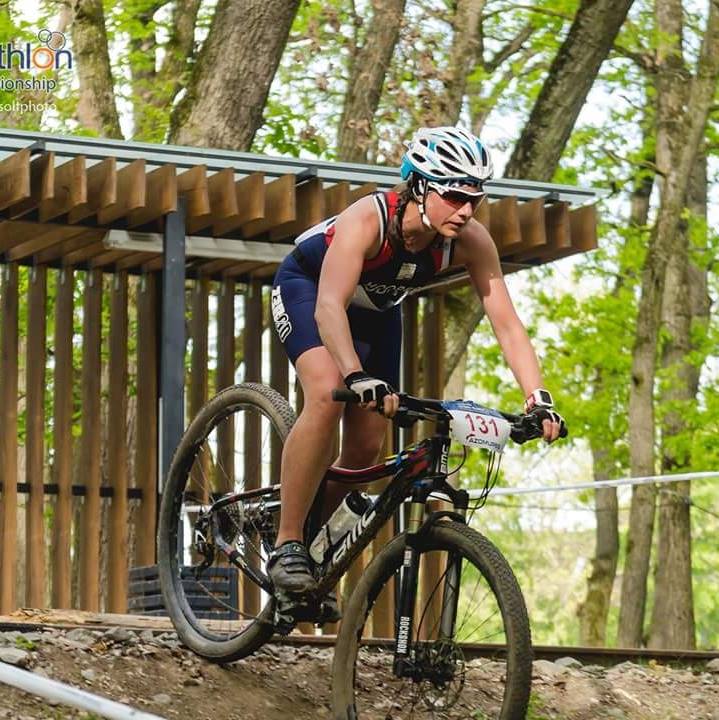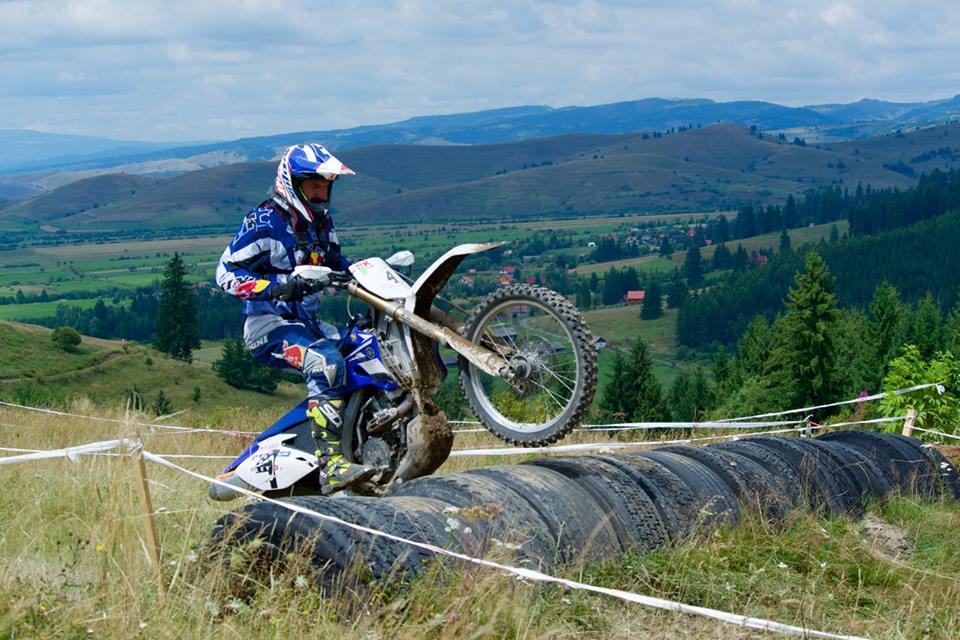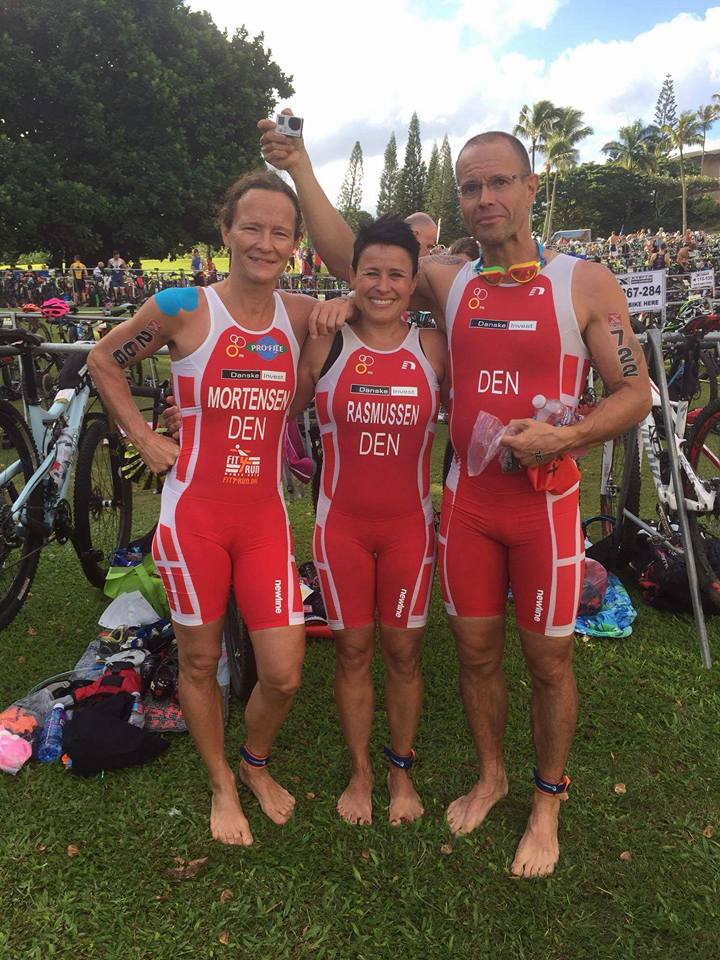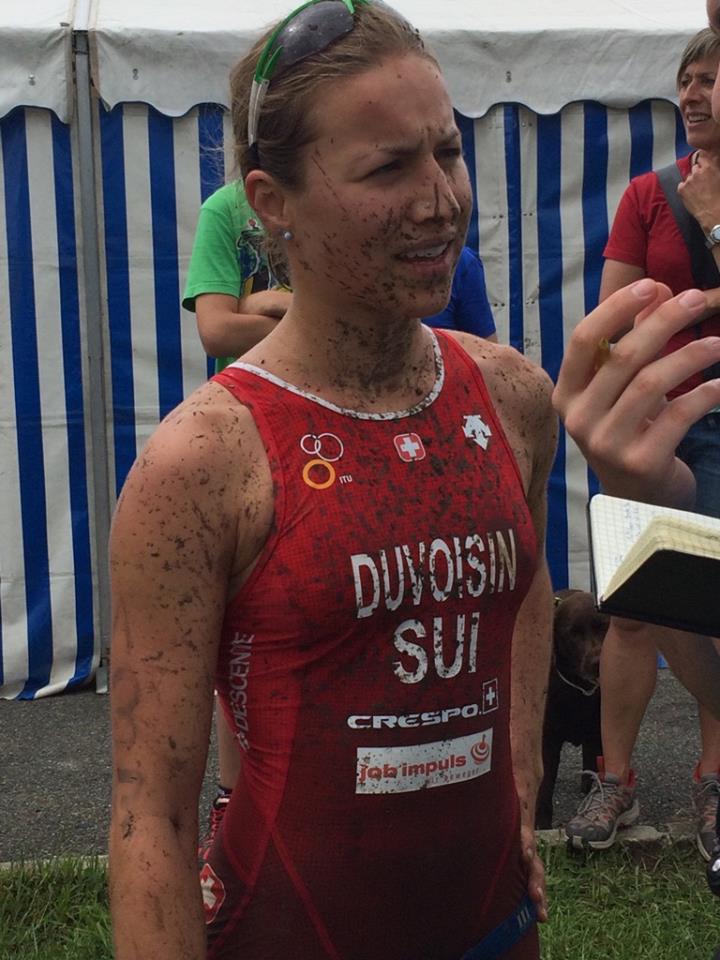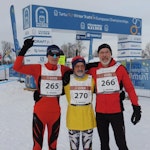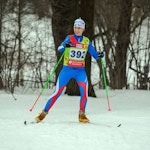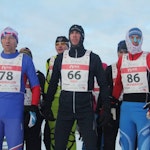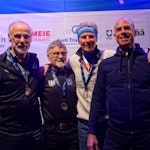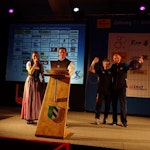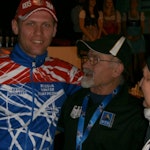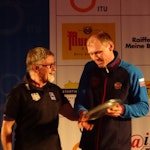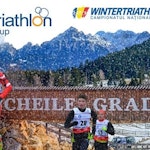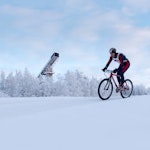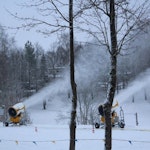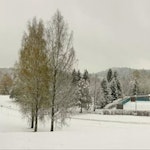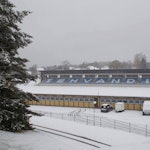ETU medals are prized possessions for Elite and Age Group athletes alike. Most of our races take place on closed roads but there is a growing demand for our races to be held “off-road” and this time we will turn our focus to those events and the athletes that are held in locations of outstanding beauty. Welcome to Winter Triathlon and the Cross Duathlon and Cross Triathlon world. Whether they race in sub-zero temperatures, or whether they love it rough and slide and skid their way to the podium on the Cross Circuit.
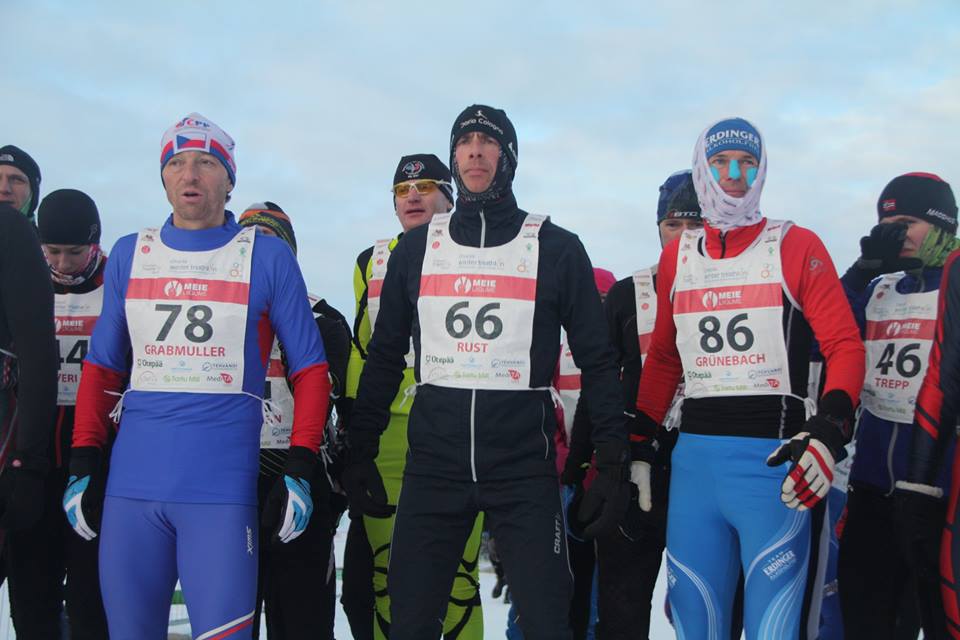
Winter Triathlon, we’ll look at this first now that the first snows have fallen in Europe and as a hardy group of athletes are putting in extra hours of training in preparation for the two Winter Triathlon events that are fast-approaching. The first chance for medals in 2017 will be at the Gradistei ETU Winter Triathlon European Cup. This comes just one week before the 2017 Otepää ETU Winter Triathlon European Championships, which returns to this fantastic venue after the massive success in January this year.
What is it that makes Winter Triathlon so exciting? Well, have a look at this video.
With the traditional format of run / MTB / ski, ETU has preserved Winter Triathlon in its purest form. If we continue to support local organisers then this tradition will continue.
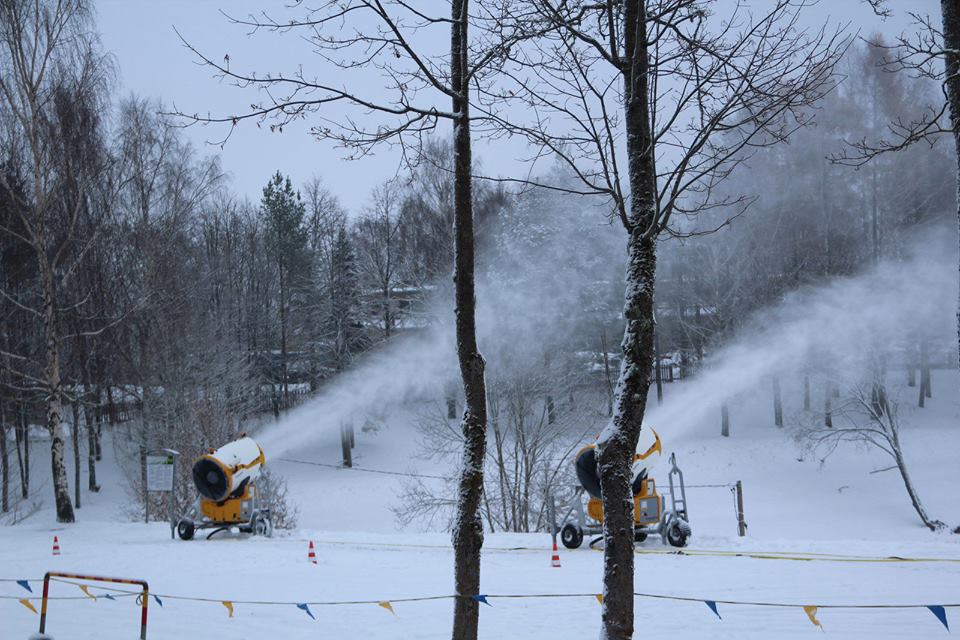
The LOCs are hard at work even now to ensure that the snow quality is as good as possible for the athletes. Estonia has already had some good falls of snow and the technicians are busy building up that all-important base layer and with that, an excellent surface upon which to race.
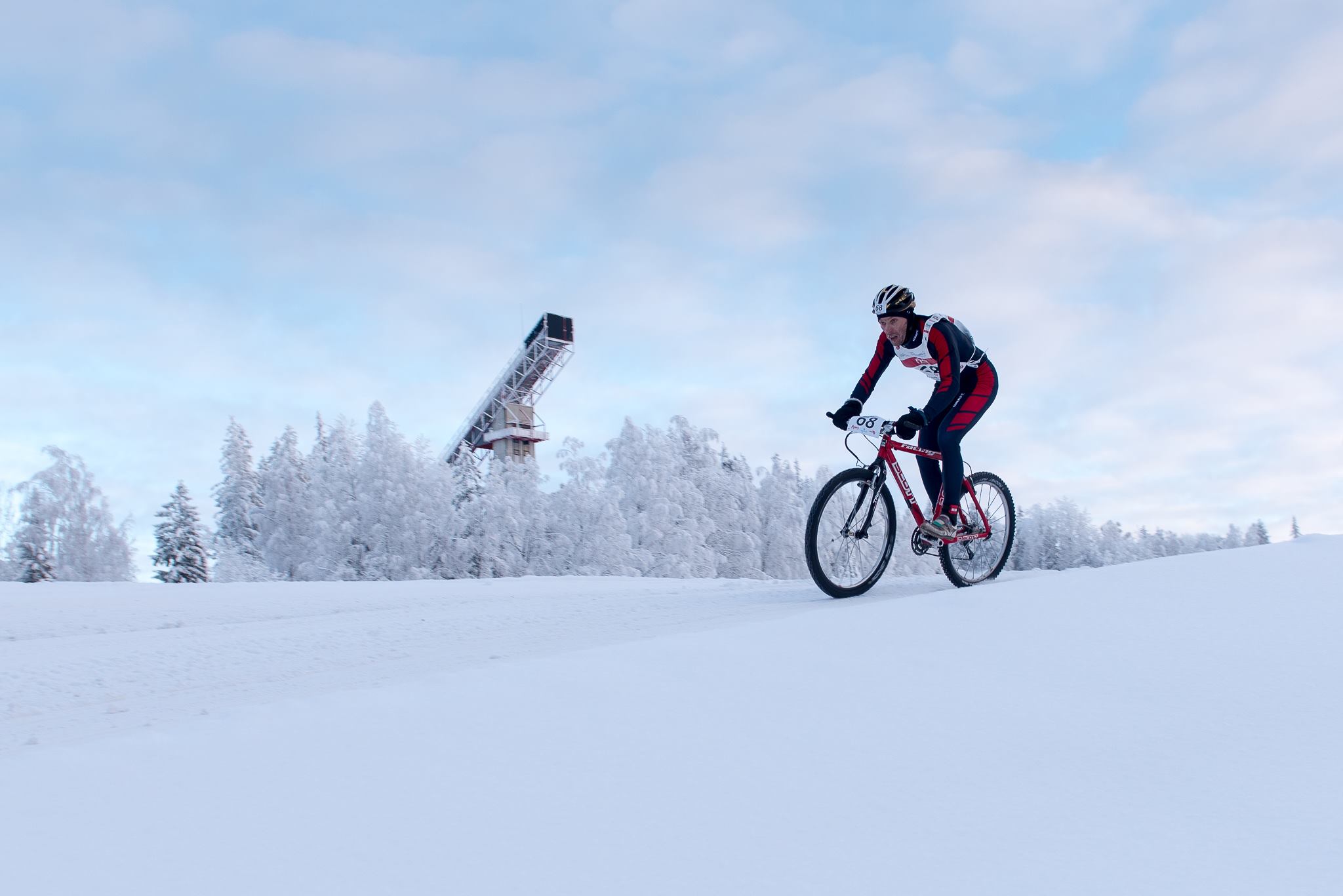
In Otepää this year, the youngest athlete to win gold came from the host nation. Kairit Veri went on to take gold in Zeltweg. Fellow countryman, Kaarel Trepp also too gold and went on to race the ETU Junior Triathlon Cups. Moving up the Age Groups and it was another gold for Estonian, Pille Muni. She was unable to repeat her performance in Zeltweg where the Austrians dominated. Perhaps the Austrians should have gone to Otepää … ? It was the same story for Luise Puu. Her Otepää gold performance was simply not strong enough for the Austrians and eventual British winner in Zeltweg. We are all hoping to see Kerry McGawley in January in Estonia as reigning World Champion in her Age Group. Based in Sweden she has already been out on the skis.
We have been seeing more and more athletes racing in the para categories. The LOC was delighted to see Spain’s legendary Rafa Solis-Torres.
After the race, where he won silver, he explained that he had never been so cold in his life. His return, to defend his title won in Reinosa, was to a place very different indeed from that northern Spanish town. Deep inland and far away from any Atlantic influence, Otepää was a race he would not forget in a hurry. Solis lost valuable time in T2 as he struggled with the cold and the change from bike to ski. His amazingly fast run and bike was not enough to prevent Estonia’s Aivar Lipp from taking the lead in the final discipline. Since then, Solis has won medal after medal, topping the season with a gold in the biggest duathlon on offer, Zofingen.
The Junior athletes came predominantly from the host nation and it was a clean sweep for Estonia in the Junior Women.
Sadly we have not had the chance to see them race since then but amongst the Junior Men it was the winner, from Russia, Anton Matrusov who went on to secure the double with a gold in Zeltweg. Italy’s Marco Liporace also raced the Worlds and came away with a bronze but it was Henry Räppo EST who went on the win Kupiškis, to win silver in Valga and then to narrowly miss the podium in Riga.
One to watch!
The U23 saw a Russian double with both golds going east. For the Junior Women it was Iuliia Baiguzova who was delighted to have improved on her near podium finishes in Tartu and Cogne. The youngest of the Czech racing family, Natalie Grabmüllerová added a U23 silver to her Junior Silver from Cogne. For the men, Roman Vasin went on to do the double with a gold in Zeltweg. Team-mate Fedor Golubev couldn’t quite manage to get a silver in the Worlds but with an Estonian silver and an Austrian bronze, his year was a good one.
Amongst the Elite there was, quite simply, some great racing. Gold was once again going to Russia. They dominated both Elite races.
Defending European Champion, Olga Parfinenko had just enough speed on the final leg to pull away from her rival Yulia Surikova who, immediately after crossing the finish line, rushed off to feed her little girl who had been wrapped up warm and looked after by Dad throughout the very cold race.
Surikova went on to win gold in Zeltweg and then bronze in Târgu Mureș. Bronze went to Austria’s Romana Slavinec who had a fantastic bike leg but who could simply not match the mastery of Parfinenko on the skis. For Slavinec it was a double this year as she took the bronze on home soil in Zeltweg. Šárka Grabmüllerová still racing elite and well into her 40’s, showed that she still has the power and technique that makes a winter triathlete. Her trip to Australia gave her a silver in the 45-49 category against 26 others, mostly from “Down Under”. I wonder how they might have fared in a winter triathlon.
The men, well, it was always going to be a battle between the great winter triathlon nations of Norway, Russia and Italy. There was no sprint finish this year and the hopes of yet another showdown between Pavel Andreev and Daniel Antonioli did not materialise. Check out this video. The action starts at around 17:00. If you can only imagine how high the heart-rate must have gone in those final few metres.
There was almost a repeat in 2014 at the European Championships but this year it was Kristian Monson NOR and Daniel Kuzmin RUS who led Pavel Andreev RUS and Dmitriy Bregeda RUS with Daniel Antonioli ITA, Evgeny Kirilov RUS and Pavel Yakimov RUS a stride behind.
Monson’s fast running had put him into a strong position but the powerful Russian cycling forced him back and soon it was just a battle between the Russians. Blisteringly fast T2s and a masterclass in skiing saw Andreev win his 5th European title to add to his 4 world titles and numerous cup golds.
With form like this it was no surprise that he went on to win in Zeltweg.
It is in the older categories that we see some truly impressive performances. Urmas Utar EST, was ETU Champion in 2013 in Tartu. Older but still determined, he took gold in 2016 and dominated the men’s’ 45-49 category. Utar had the strength to pull away from the chasing Russians, Denis Nikonov and Andriyan Khristoforov, who has a selection of medals from Alanya, Tartu and Jämijärvi. In the 50 – 54 category, Tea Lang EST had already won silver back in 2013 in Tartu. She improved upon this with a gold but it was touch and go against Russia’s Nataliya Sila-Novitskaya, whose fast pace on the run and skis was not enough to take her to the top of the podium. It was a reversal of fortunes, as Sila-Novitskaya had won gold in Tartu against Lang in quite different conditions.
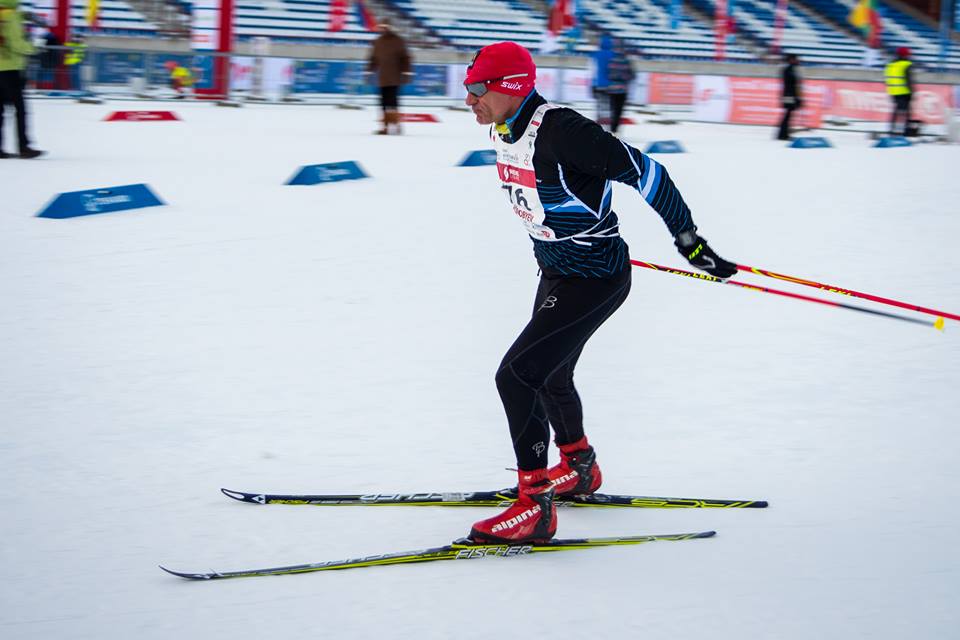
The Russian athletes generally come race-ready, having already had the chance to compete in their domestic Winter Triathlon races well before the ETU and ITU Championships. With shouts of “Давай-давай!” (Davai, Davai – go, go, go!) the coaches, athletes and supporters encourage their team-mates to race harder. In the men’s 50-54 category, this encouragement was certainly needed by Igor Vorobyev RUS who was up against the immensely experienced Ivo Grabmüller. The battle was won on the bike and on this course in January, the snow conditions were so good that the TV crews reported that their skidoo was clocking 60 km per hour as they raced alongside the Elite. The entire Grabmüller family, from Czech Republic, race all year around. A dynasty of athletes in fact.
In the 55-59 category, we saw Oleg Sukhodolin RUS dominate the race to win a comfortable gold. He went on to take silver in Zeltweg, silver in Lisbon in the sprint and a bronze in the standard distance. A true all-rounder and we all look forwards to seeing him race again in January. His journey to gold in Otepää was not an easy one, as team-mate Andrey Sharygin pushed him all the way. Indeed his challenge continued to Zeltweg where he took bronze behind Sukhodolin.
Mixing cold weather racing with the heat of Cozumel, Iskandar Shakov showed us that an Otepää gold was not enough for him. He went on this year to silver in Zeltweg, a top ten in Lisbon over the Sprint distance, 10th in Aviles in the World Duathlon Championships, narrowly missed a medal with a fourth place in the Aquathlon in Cozumel and finished his season with a silver in the scorching heat of the Cozumel Sprint. Shakov has been winning ETU medals since 2010 and his silver in Athlone.
In the 65-69 category, gold went to Anti Oot EST. he was chased by Germany’s Peter Grünebach whose bike helmet fastener failed on the bike and he lost valuable minutes trying to re-secure the clip in freezing conditions. Oot went on to Zeltweg but it was there that Grünebach took revenge with a blistering performance on the bike. Bronze in Zeltweg for the German was safe. He went on to take the ETU title in Poznań. Between him and his wife they have collected more medals and titles than most.
The senior German Age Group athletes are a strong and dedicated team who have supported winter triathlon for many years. In the next category, Steffen Luis Neuendorff was a comfortable winner. His victory in Otepää was one of many. He went on to Zeltweg but just missed out on the podium, but won gold in Târgu Mureș and topped off 2016 with a down-under bronze in Snowy Mountains.
The final word on Otepää has to go to the man who got the loudest applause and longest standing ovation. From Germany, in the 80-84 category, we present Reinhold Wolter. A legend who lives for sport and who, upon arrival in Estonia in January was unable to find a suitable bike for hire. It looked like his race was over until, at the Race Briefing, multiple world champion, Pavel Andreev RUS, upon hearing the problem, said, “No problem, I lend you my bike as soon as I have finished racing.” The winter triathlon community is a small one but perfectly formed.
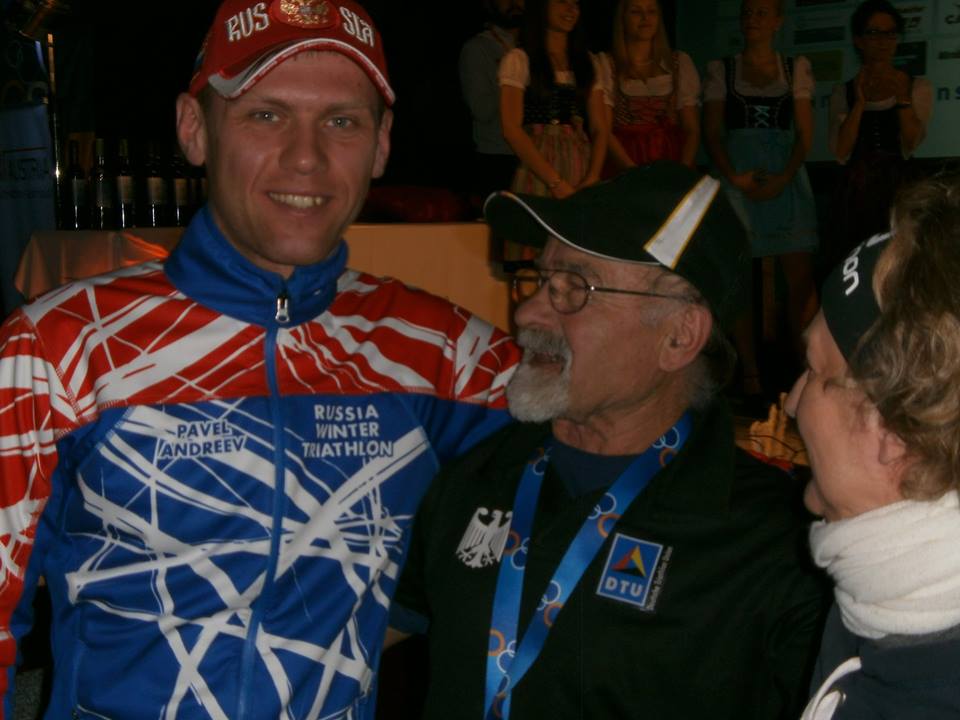
When they next met, in Zeltweg, there was a special presentation made by the oldest athlete to the World’s Best athlete. Inscribed “For my Russian friend and World Champion of the Winter Triathlon Pavel Andreev for lending his mountain bike at the European Championships in Otepää /Estonia 2016 for the oldest participant of the Age-Grouper Reinhold Wolter!“
Having been lucky to work at many Winter Triathlon events, since my first in Achensee ETU Championships in 2002, I can recommend the freezing run, MTB, ski format. It is exciting, challenging and raced in the most beautiful locations you could possibly imagine. 2017, January. We can’t wait!!
One of the biggest problems that faces any LOC is getting permissions to close roads to ensure the safety of athletes. By going “off-road”, the LOC can be more creative and can offer the athlete a really great experience. More and more events are taking place off-road now and around Europe there is a strong community of athletes who, with a mountain bike, can train and race the whole year around.
ETU held its first ever Cross Duathlon Championships in Spain in 2015.
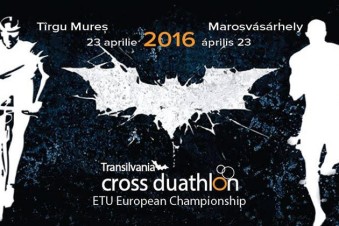
It was a success amongst the athletes who made it very clear to anyone who listened that they wanted more. “More” came in Romania and with what must have been the best marketing logo – the focus shifted to Transylvania.
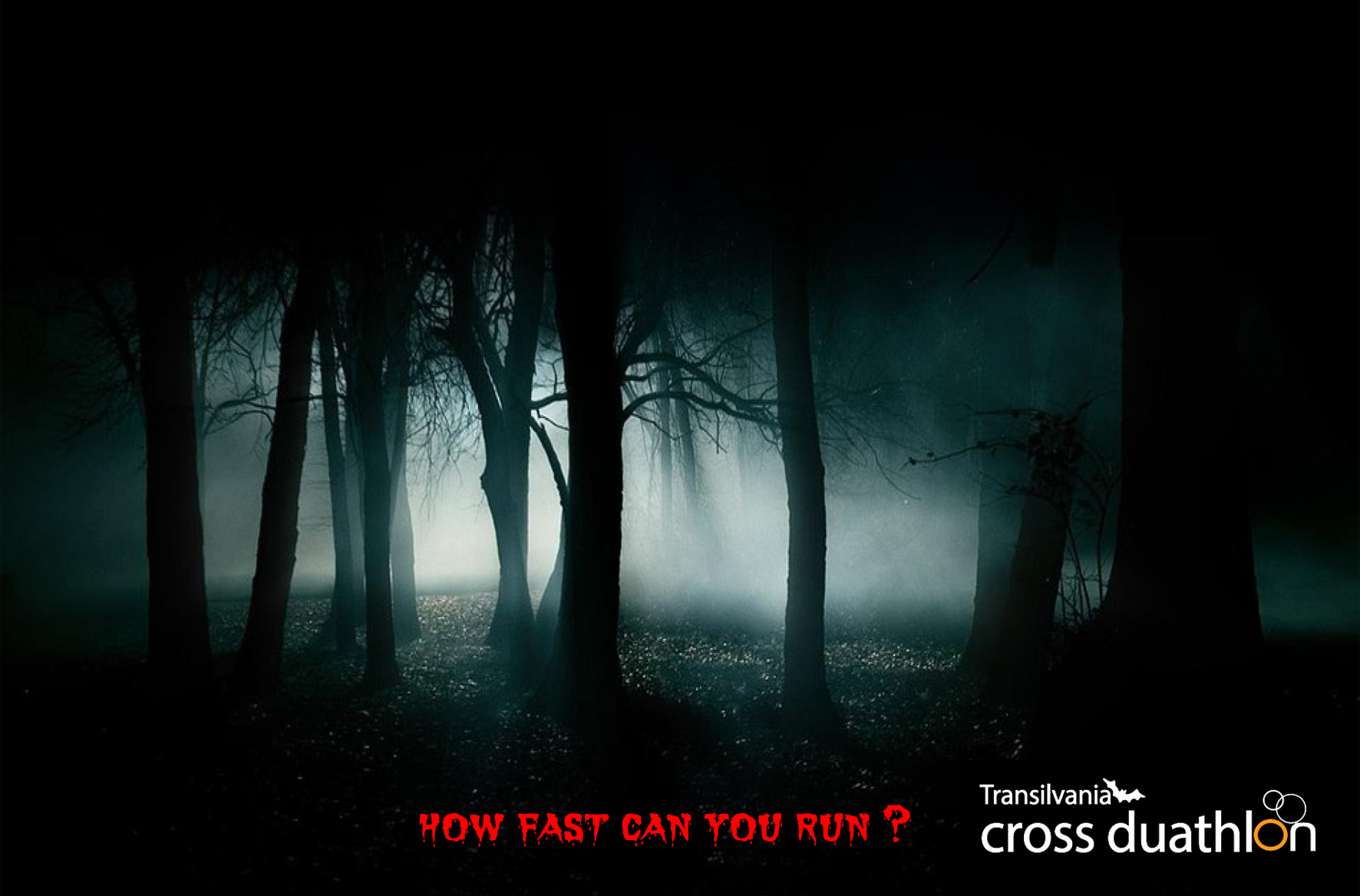
Athletes were met at Târgu Mureș airport by “Dracula” themed cars and treated to typical Transylvanian hospitality along with one of the most unusual race briefings seen in many years. The ETU Cross Duathlon Championships was obviously the main event but local athletes joined in with the Age Groupers for the “Dracula Midnight Run” that took them 6.5km through the darkened forests at night-time. This scary event was held after the Age Group races so that as many as possible could enjoy the additional strain on their heart-rate.
The next day, between races, Age Group athletes had another chance for exercise with a Cross Country race of 12k. Great prizes for all meant that the trip was really worthwhile and the very positive comments that came back showed that Peter Klosz and his team had really got the recipe sorted. So much so that for 2017, they have been awarded the Cross Festival and will host the Cross Duathlon and Cross Triathlon Championships.
What’s it all about? Check out this video.
Amongst the athletes who raced there are some familiar names. Great Britain’s Molly Campbell has had a spectacular year. Her 16-19 gold here was followed up by a World Gold in the Snowy Mountains Cross Triathlon Championships after a disappointing DNF in the Vallée de Joux ETU Cross Triathlon European Championships.
Although not claiming the title, Lars Holder GER has remained in the top three of his age group since his first appearance in Zittau. 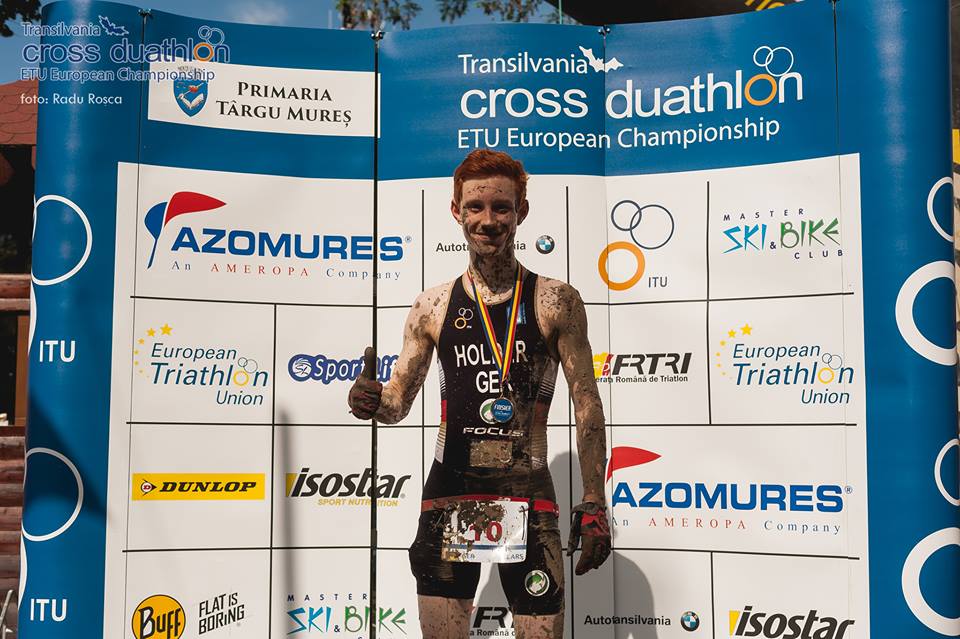
If there was a prize for the muddiest person, then he would have won gold. From France we saw Damien Brunie take bronze. He went on to repeat this performance in Vallée de Joux, showing an improvement on his 2015 Schluchsee result, when he just missed out on the podium.
Great Britain was well-represented this year. Nicola Noble, winning silver in the Castro Urdiales event in 2015 and a silver in Kalkar at the ETU Duathlon Championships, improved upon those results with a Târgu Mureș gold and went on to secure a top ten finish in Aviles at the Worlds.
Sharn Hooper in the 30-34 category went on to win bronze in Vallée de Joux. Germany’s Martin Hümbert battled against Mustafa Şirin in the Men’s 30-34 category. Cautious running from Şirin on the first leg meant he had to chase for the rest of the race. On the bike they were well-matched but the final run saw Şirin really push. It was the German who took gold for his first ever ETU podium. Turkey can be proud of their silver. Şirin, as soon as he had finished, focussed his coaching attention to his U23 athlete who was preparing for his race. With a strong MTB background, Şirin was able to discuss with the LOC and ETU Technical Delegate a variety of ways to improve the race for 2017.
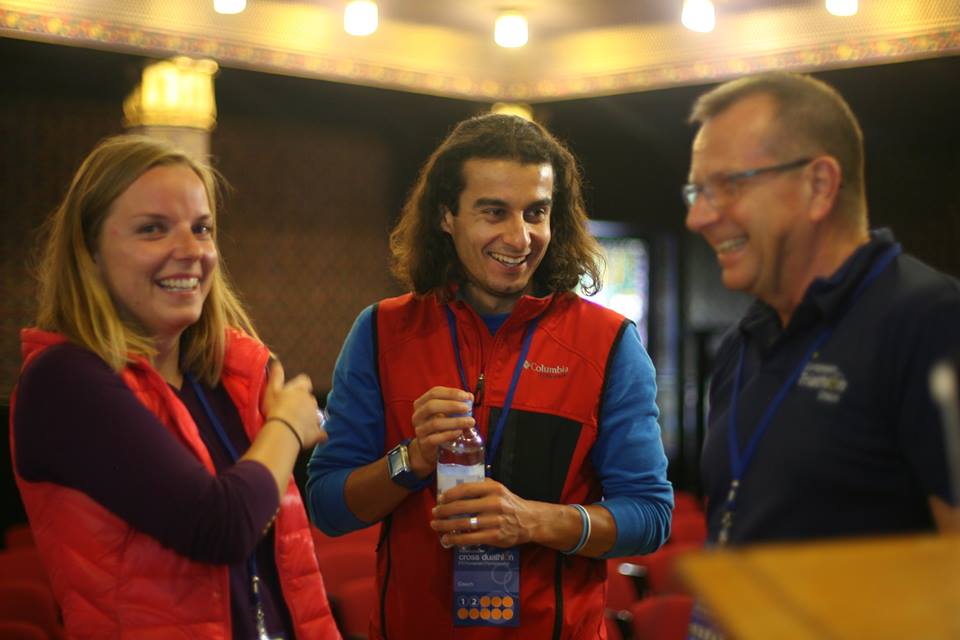
Germany picked up gold again in the 35-39 category when Johannes Franzky out-performed everyone. 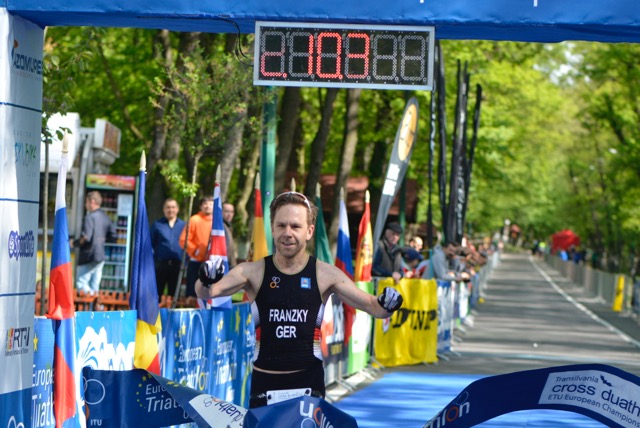
He showed that this was not a “one-off” victory by taking the Cross Triathlon title in Vallée de Joux. Silver went to GB’s Ross Smith, showing a great improvement over his 7th place in Castro Urdiales and Lee Imrie joined him on the podium, boosting the Team GB medal haul.
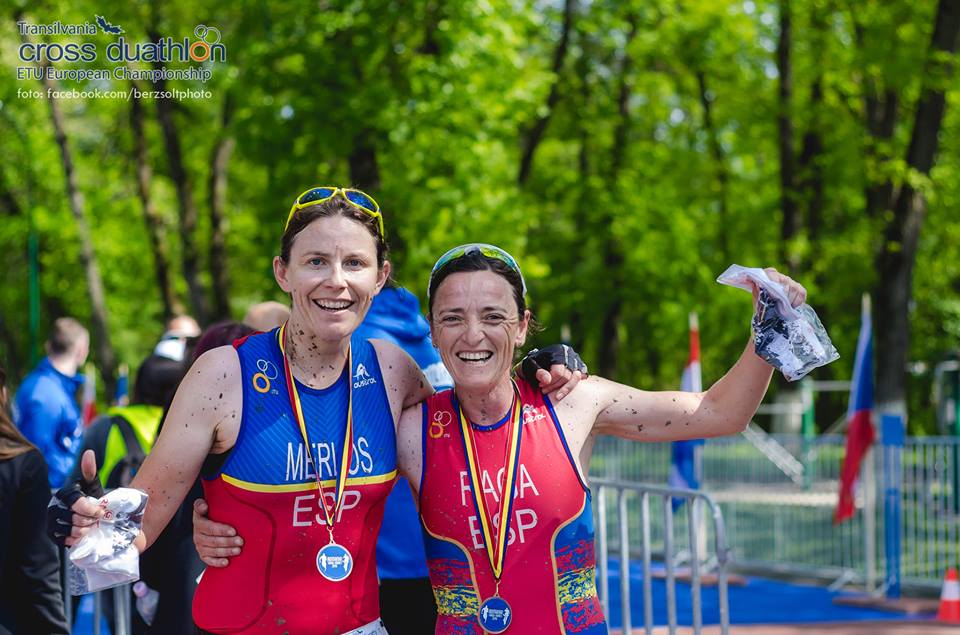
In the women’s 40-44 category, Spain sent two strong athletes. One, we had seen before. Winning silver in 2013 and 2014 in Zofingen, we knew that Gema Raga Ruiz had power in her legs but on this occasion she would not have enough to beat Isabel Merlo Rodrigo and in one of the closest finishes of the race, it went down to the line and only a 2 second difference after they were pretty much locked together for the entire race. GB’s Kirsty Prior could not find that extra gear to beat them but at least could add this bronze to the one she won in Kalkar.
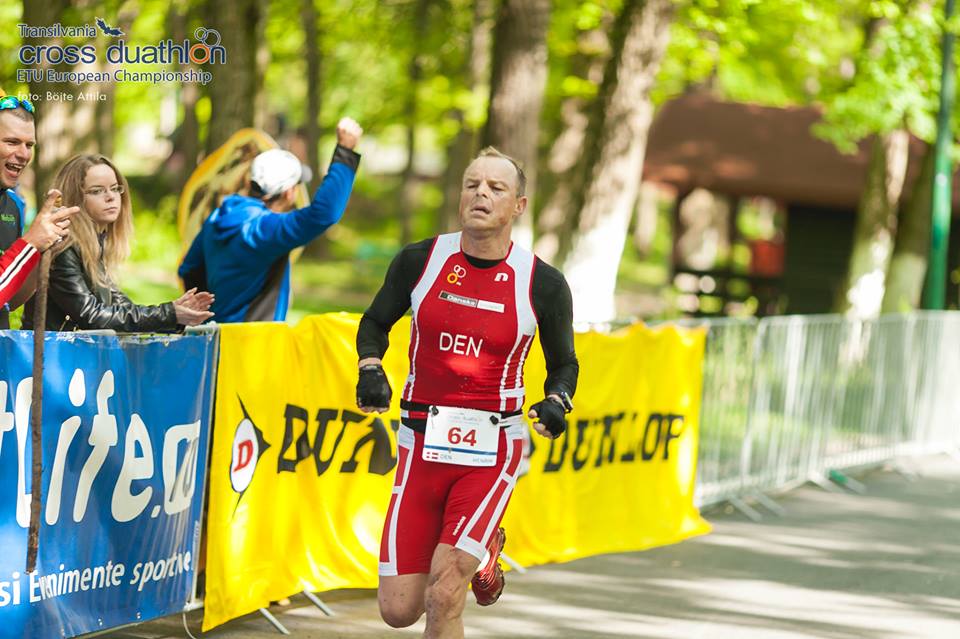
In the same age group it was Denmark’s Henrik Søeberg who improved upon his Schluchsee bronze with an immensely powerful performance on the bike to secure gold ahead of GB’s Jim McConnell. He missed out on the podium in Northern Spain last year but comfortably took silver.
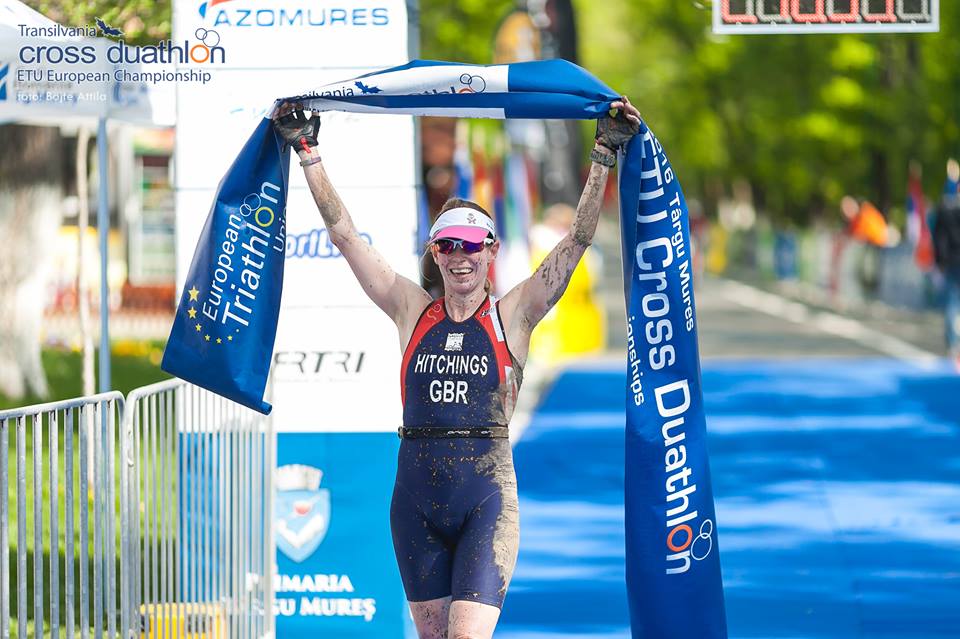
Britain’s Claire Hitchings came to this race knowing how good it is to be on the podium. With three silvers, a bronze and a World gold, she was in form. Her finish time that gave her gold in her age group would have given her a top ten finish amongst the Elite Women. In the same age group the medals for the men were shared between Romania, Germany and Ukraine. As with many other races, it is a great chance for the athletes from the host nation to race against athletes from all over the world. Not only to race but also to win medals.
Gustav Robert Mircea is a man happy to be off-road. Whether cyclocross or motocross. He knows the Transylvanian paths and tracks where the race took place this year. Immensely powerful on the bike, he will be the man to beat in this category in 2017.
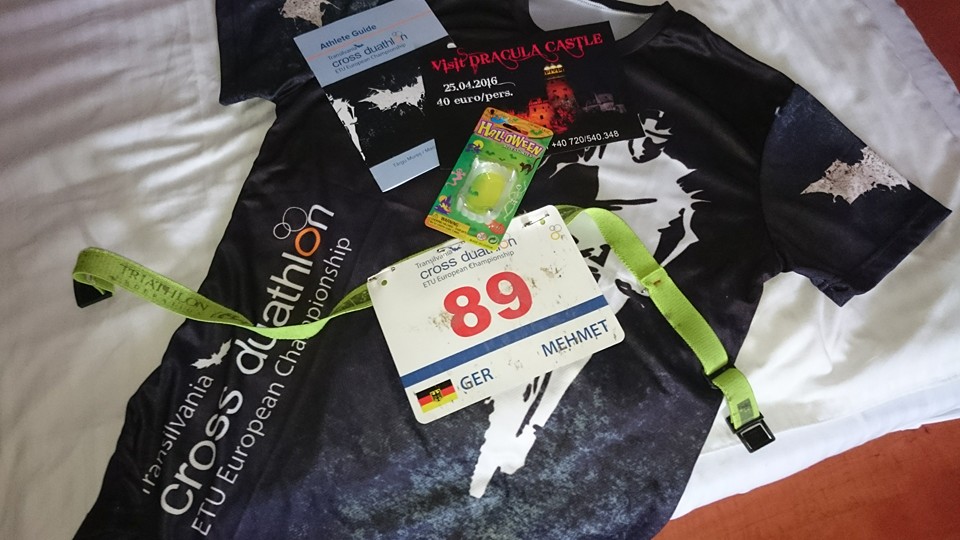
Germany’s Mehmet Kloss has raced before on the long course but this, shorter but tougher, gave him his first medal and great memories. For Ukraine, a small group of athletes made the journey. They were well-rewarded. Serhiy Pryyma won bronze in this tough category and his daughter Sofiya, a former Youth Olympian, racing as a Junior, claimed the European title in style.
It was this category that saw the most impressive crash of the entire weekend. Honours went to Simon Ward. His timing for the crash was immaculate - he was directly in front of a Technical Official and a medical team.
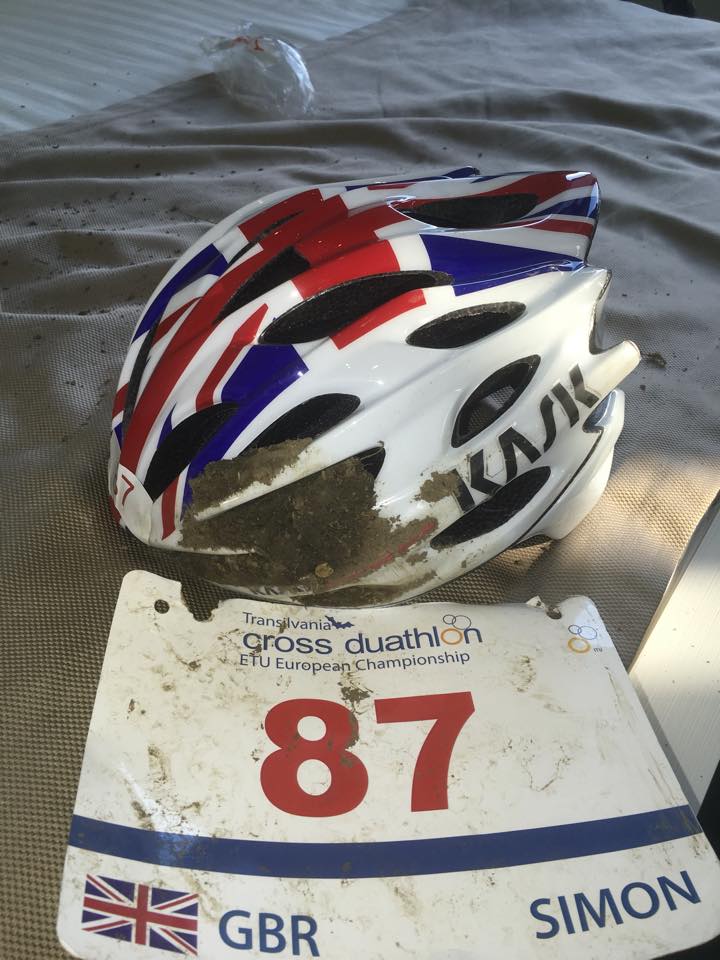
His first question, “Did anyone get this on film?” His second, “Is the bike OK?”. Well, the bike was fine, Simon was fine but we take on board the absence of a decent video. Sorry Simon.
Moving up the ages, it was multiple-medal winner, Heike Steininger who took gold and who went on the race the Dracula Run and the Cross Country Race over subsequent days. This title was added to her 2014 title in Sardinia in the ETU Cross Triathlon Championships and to her bronze medals from Strobl am Wolfgangsee in 2013, from Zofingen in 2014 and 2015 and then improving with a silver in Castro Urdiales. Her season finished with a silver in Zofingen in September.
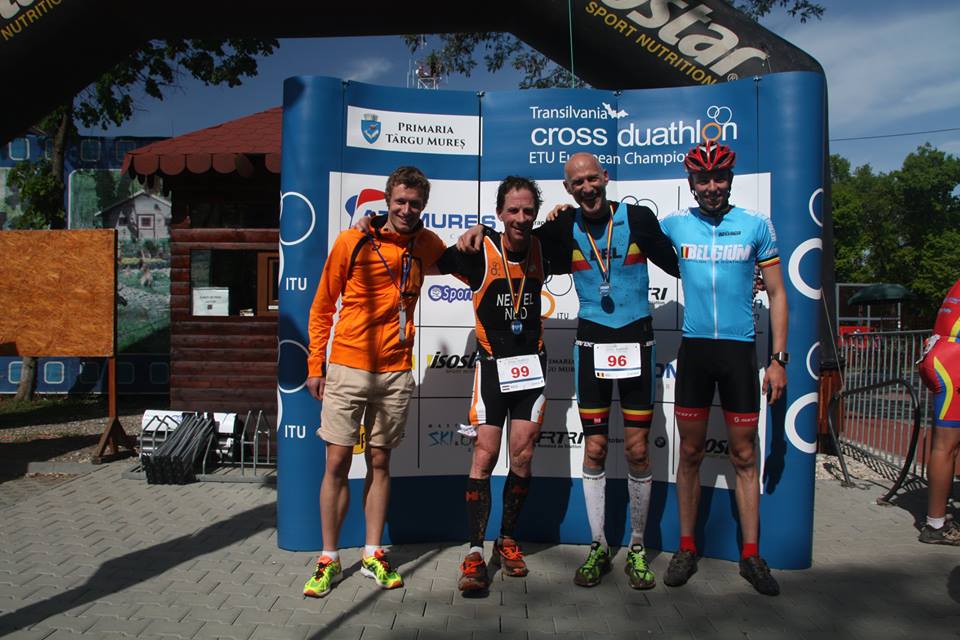
For the men, it was again a bronze for Ukraine with Volodymyr Ryabtsev. Dutch supporters were delighted with the silver from Johan Neevel who has been picking up medals on the ITU / ETU circuit now for almost ten years. It was way back in 2007 when the ETU Cross Triathlon Championships were held in Ibiza that, as the only non-Spaniard racing in his age-group, he took the silver. Since then titles were won in Extremadura and Visegrad and then a series of silver medals in Strobl am Wolfgangsee and Paguera Majorca. Way out in front though, was Belgian, Didier Vandenbosch, who improved vastly upon his Kalkar 7th place.
Racing the same distance but in the last category to do so before we reverted to a shorter distance for the senior athletes, it was Great Britain’s Nicholas Farnell who secured another bronze for Team GB. He made a return to the podium, having won silver in Strobl am Wolfgangsee and following his solid race in Transylvania, went on to win the bronze in Vallée de Joux. Ahead of him, despite a slower second run, was Germany’s Peter Jung. This silver matches his silver from Castro Urdiales. Neither could match Yuriy Ostashin who dominated the race.
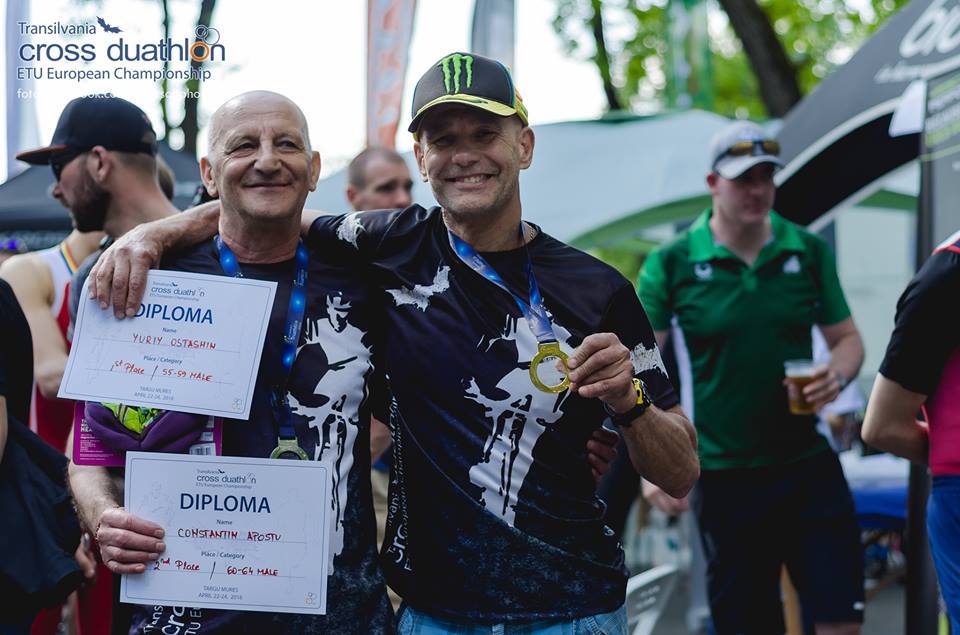
To reduce risk to the very senior athletes, it was decided to reduce the distance they would race. Constantin Apostu took silver behind GB’s Richard Hardy.
The oldest category, 70-74, saw gold go to Germany as Steffen Luis Neuendorff added this title to his Otepää gold.
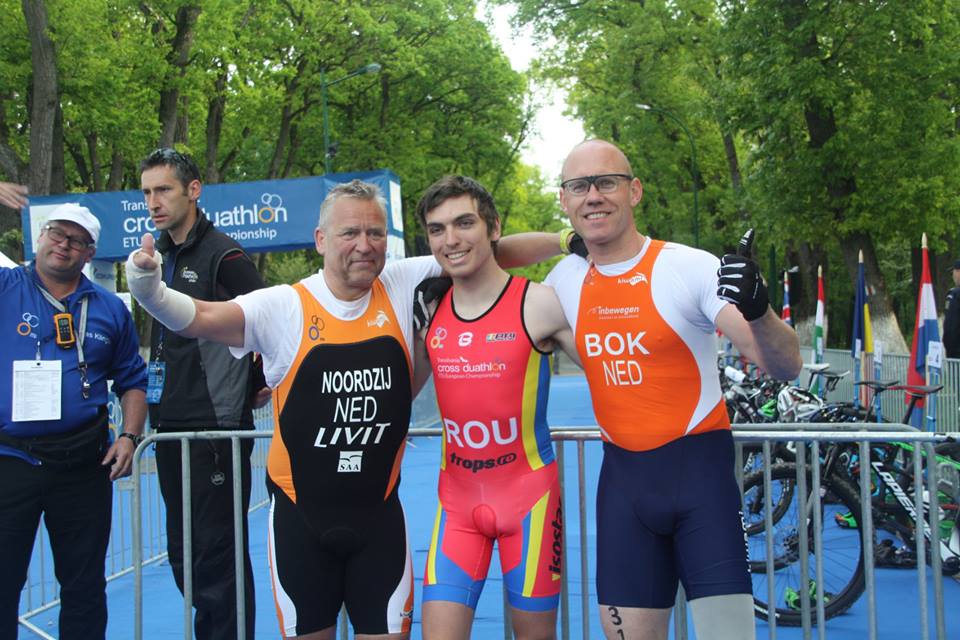
When we assess the run and bike courses for cross events, we always check to see if it is going to be possible for a para wave. This event did indeed allow the participation of para-athletes and there was significant local press interest in the international team that made its way to the start line.
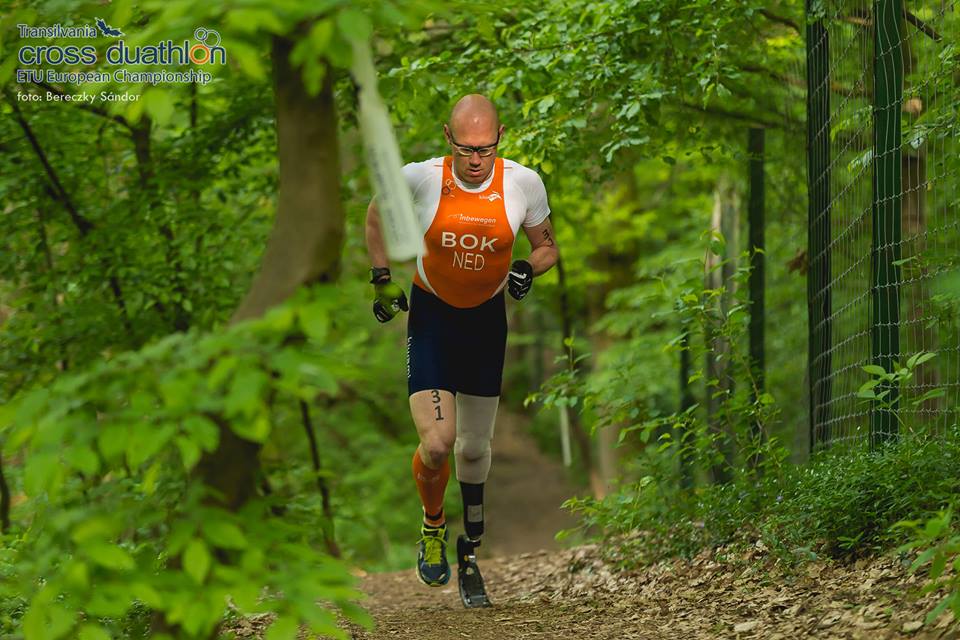
The tall Dutchman, Reitze Bok, with his hi-tech leg prostheses was going to have a tough time running on the uneven surface that was in places very muddy, in places very steep and everywhere, pretty tough. He was the only PT3 athlete to race but he was joined on the start line by two highly-experienced athletes representing Spain and again, the Netherlands. Rob Noordzij has been campaigning for his sport for many, many years and racing in as many different varieties of multisport as he can for many years now. With European titles in triathlon, cross triathlon, winter triathlon and Aquathlon he would be the ideal man to comment on the toughness of the race once he had crossed the finish line. He was joined by the equally well-known Rafa Solis Torres. Torres has also been picking up European and World titles and has raced Winter Triathlon, Middle Distance Triathlon, Long Distance Duathlon and anything in between.
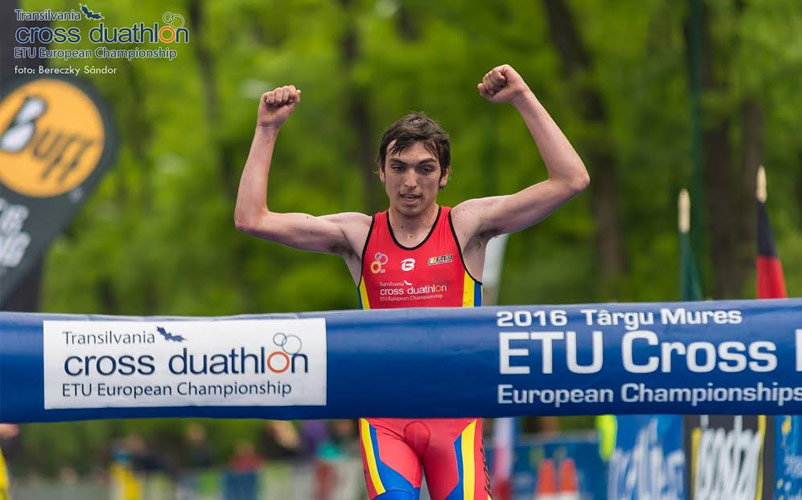
They welcomed young Robert Tamirjan. Only born in 1988 this young man is part of the Romanian para-cycling squad and although he had shown real form in the Balkan Championships that were held on this course in 2015, he would now be racing against senior and very experienced athletes. The first run saw him come into T1 some distance behind Torres but as the bike laps were completed he had absolutely dominated the MTB section.
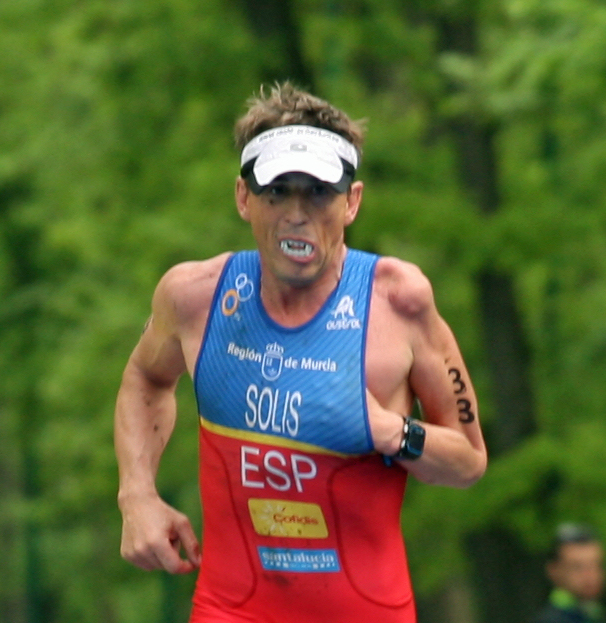
Torres heaped praise upon him at the awards ceremony as the gold medal was presented to the young Romanian who went on to race in Aviles at the worlds where he got a top ten finish.
Amongst the juniors there was a good spread of medals with five nations sharing the glory.
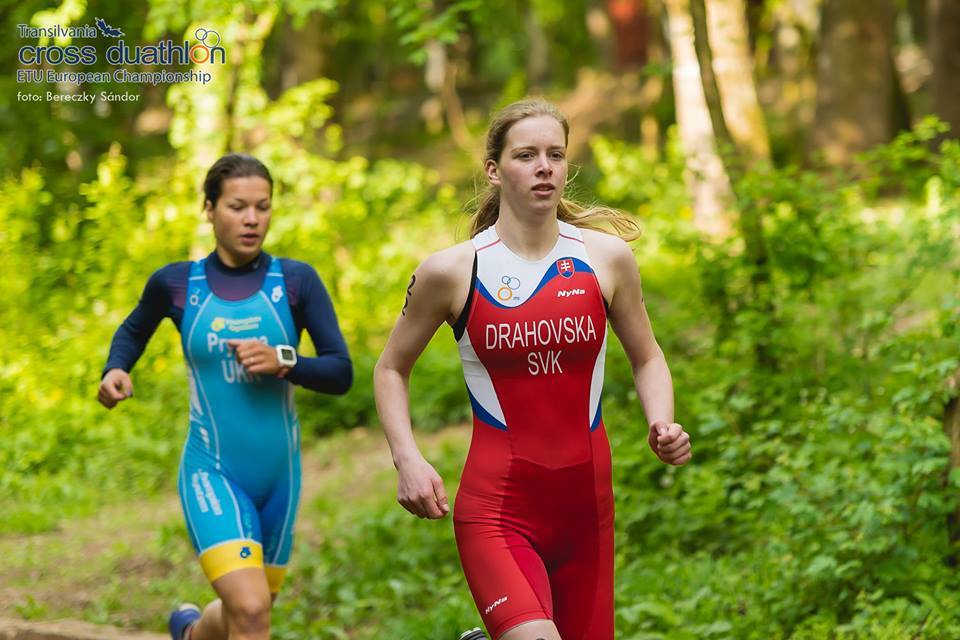
Gold went to Ukraine in the hands of Sofiya Pryyma. She went on to win silver in Tulcea and had a top ten place in Bled. She finished the 2016 season with a race as an Elite athlete in Tongyeong where she finished in a respectable position behind some very fast athletes. Behind her in Transylvania came Slovakia’s Lýdia Drahovská. She went on to secure a top ten place in Vallée de Joux. Croatia’s Ema Filipović.
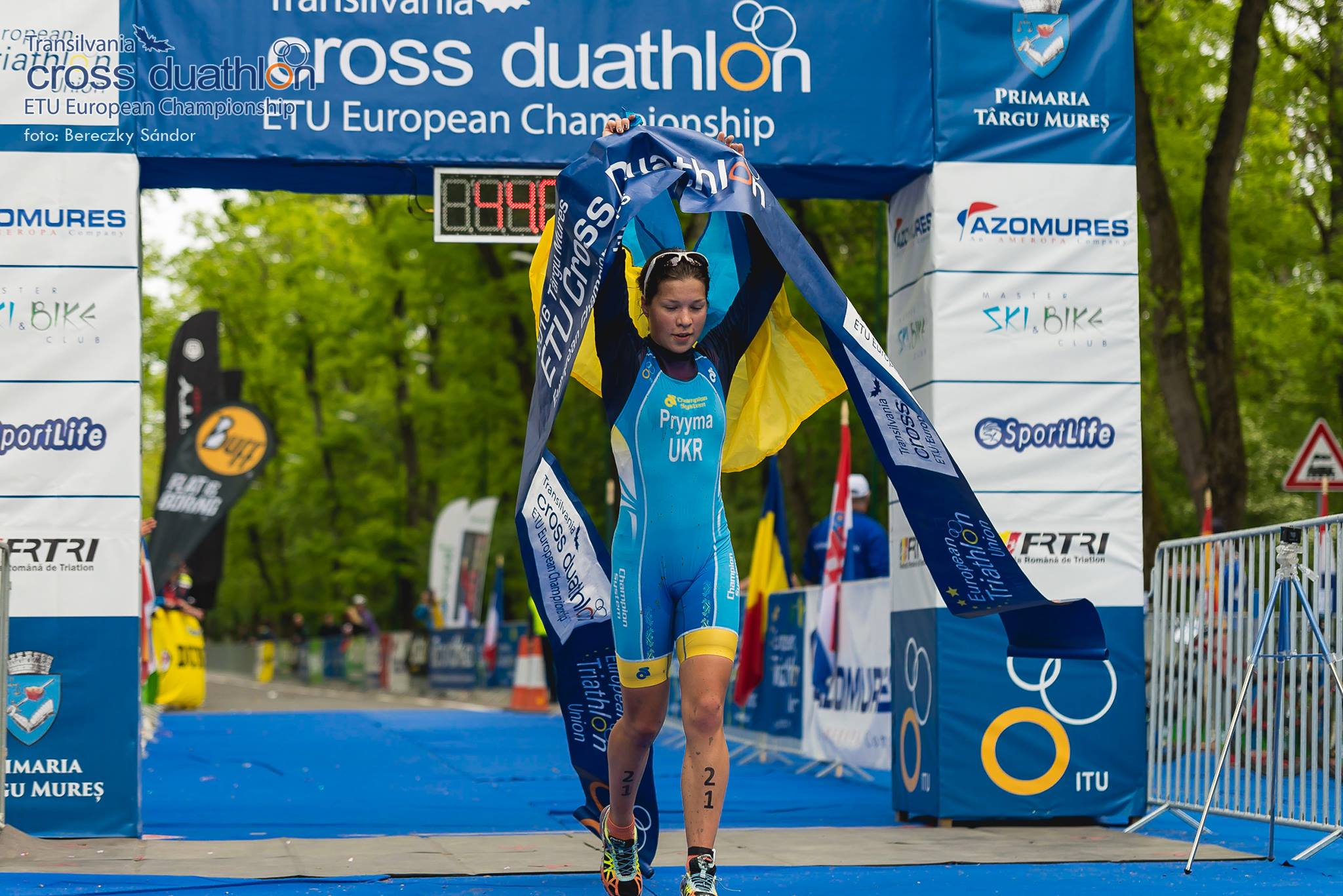
The Junior men’s race was won by Slovakia’s Matúš Kozlovsky. He went on to another podium appearance in Vallée de Joux with a bronze and further racing on the ETU circuit. He was comfortably ahead of Aleksandr Srandev BUL who was unable to repeat his success as the year unfolded. Bronze went, to the delight of local fans, to Szabolcs Kovács who has raced so well in Romania. It would be really nice to see him race more on the international circuit.
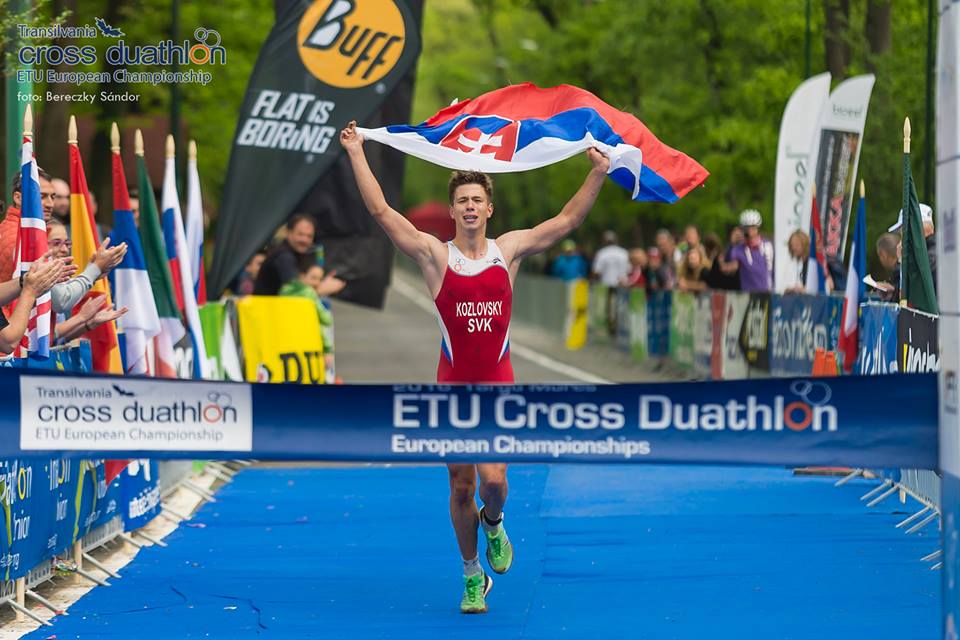
The Elite Women and Elite Men all knew each other and all knew just how much respect the course needed. The first run, taken on its own, was OK. The bike course, taken on its own, was OK. The final run, taken on its own, was OK but when added together that final run really hit home to several athletes.
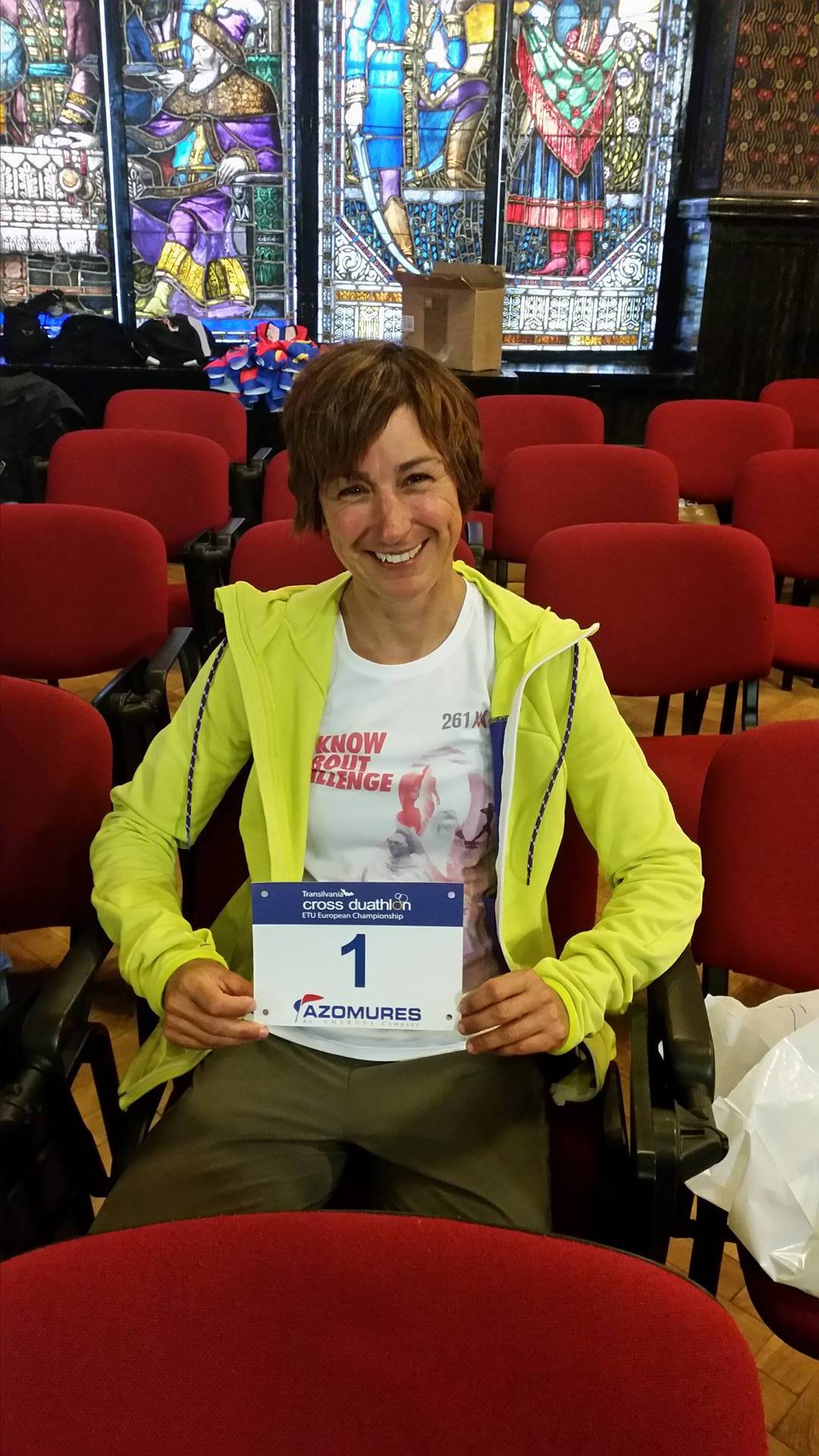
For the Elite Women, the title was defended by Spain’s Margarita Fullana Riera. It was, as in 2015, the biking that gave her victory. Silver went to Slovakia’s Kristina Lapinova and bronze went to an athlete we usually see on the Winter Tri circuit, from Russia, Yulia Surikova.
Within the race it was a chance for the U23 athletes to test themselves against the more experienced and, one might expect, faster Elite athletes. Latvia’s senior coach, Igors Siminatis was present at the race as one of the many Self-funded technical officials. He powerful cyclist himself, he was managing a particularly difficult part of the bike course but was able, nevertheless to support his athlete, Anastasija Krūmiņa and was delighted to see her win the title. Sadly she did not manage to repeat this performance in the awful conditions of Vallée de Joux.
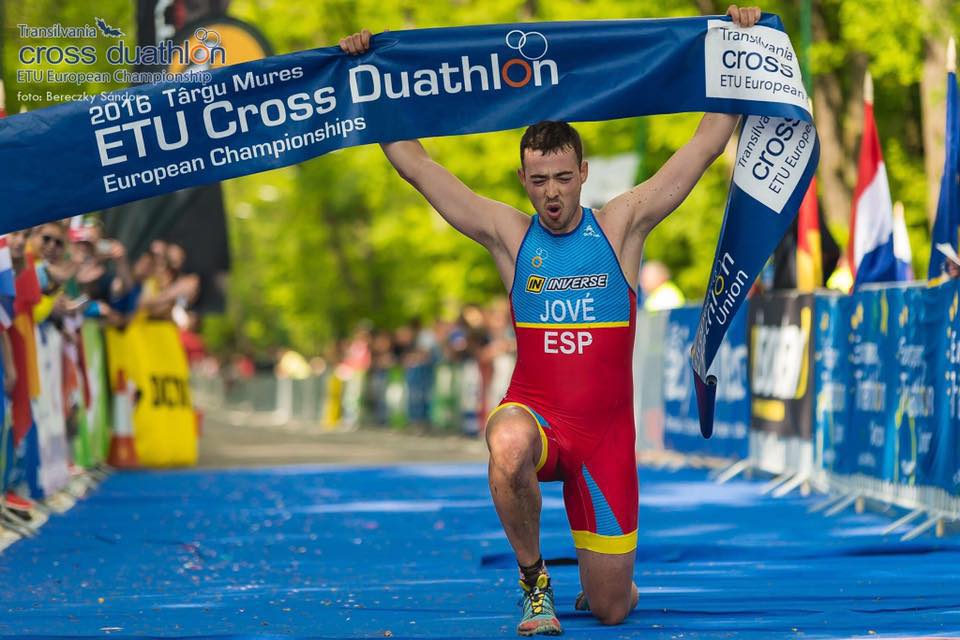
In the men’s race, tradition was thrown out of the window by a thrilling performance from a young Spanish athlete. Watch out for this man. Xavier Jové showed that he was fully recovered from his late-season injuries. The local crowds were clearly hoping for a Romanian victory as Ciprian Balanescu was racing and with his 2015 Balkan Championships win on this course, knew it well and had the psychological edge. He would have to work hard to overcome the skills and experience of Kris Coddens BEL, Norway’s Øivind Bjerkseth and, making a very rare appearance away from the snow, Russia’s Evgeny Kirilov. Following a strong early showing in Kalkar, Balanescu was confident and his early lead on the run made it look as if medals would go to the host nation but once the bike started it was an outstanding demonstration of power that took the young Spaniard into the lead. A blisteringly fast T2 and the determination to take the overall title, saw him finish in magnificent style to take both the Elite and U23 titles. Behind him came teammate Joan Freixa Marceló who pushed the Romanian into third place.
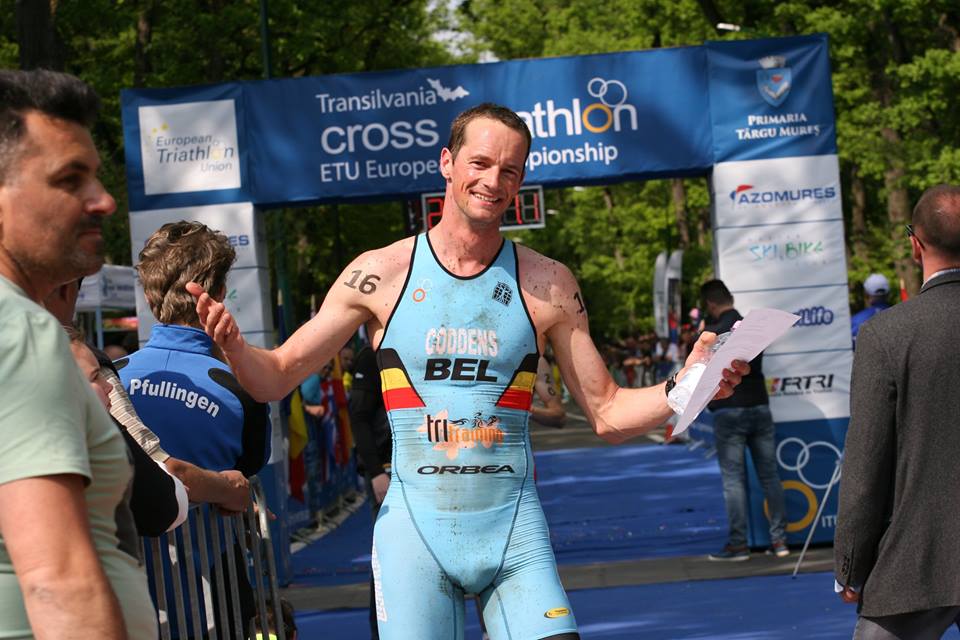
Coddens had a tough race but was full of praise for the course. He went on to take a well-earned silver later in the year in Vallée de Joux.
The U23 title having been settled, it was silver to Attila Daniel ROU and bronze to Croatia’s Silvije Tomac.
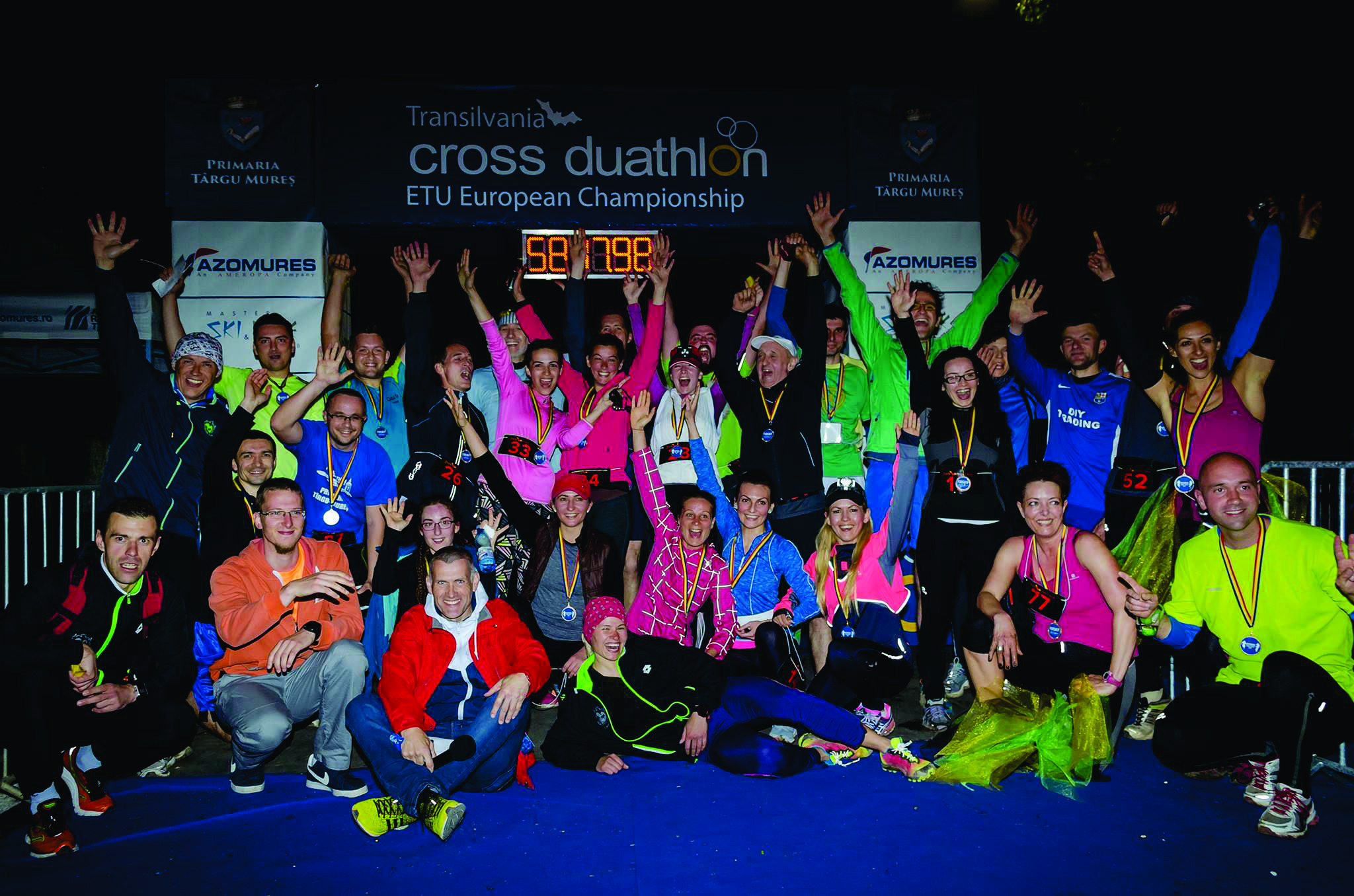
Transylvania was a hit for all athletes and for the big team of Self-Funded Technical Officials who made their way to the race. Value for money? Most certainly. Great hospitality? Without a doubt. Great Race? Yes and we are going back in 2017 !
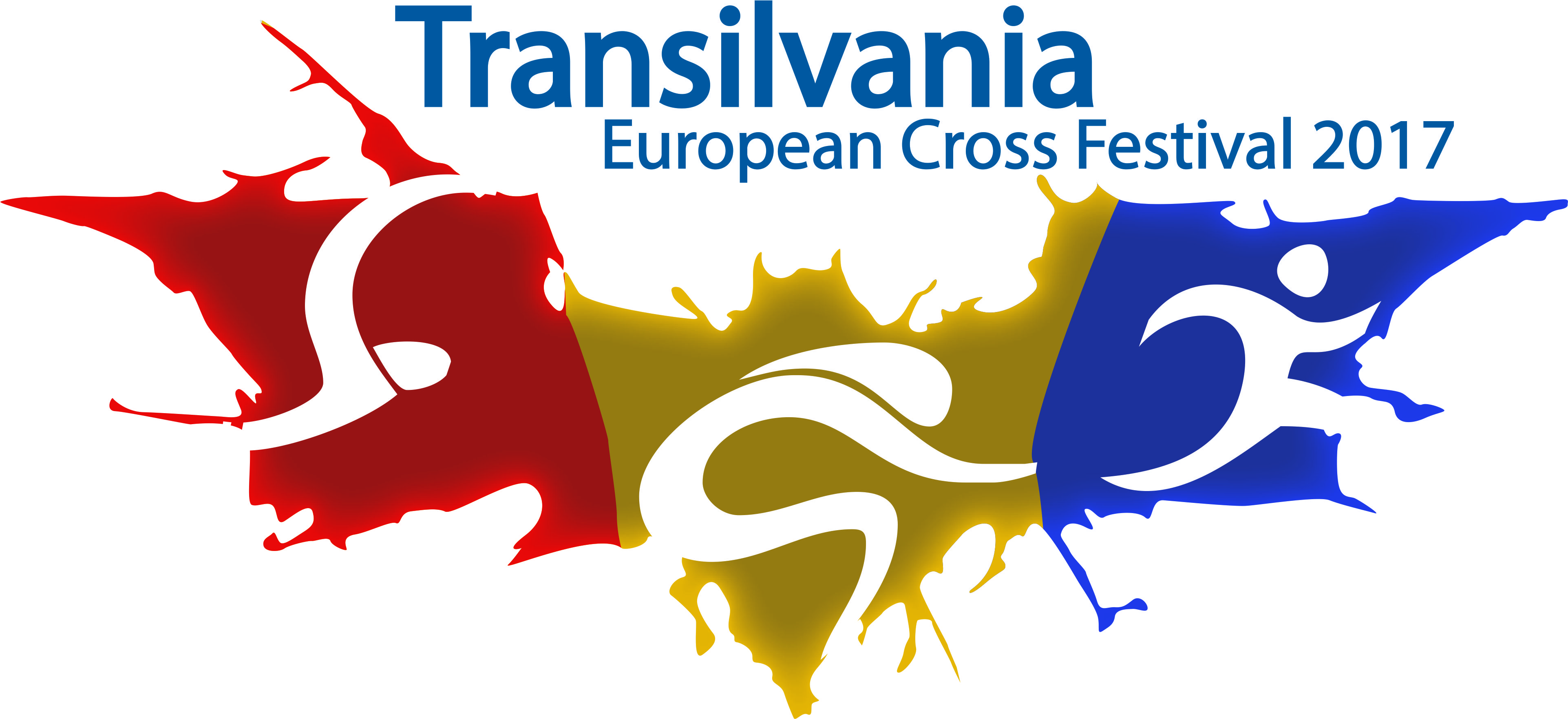
Our last event in this bumper review took place in Switzerland. 2016 Vallée de Joux ETU Cross Triathlon European Championships was one of the muddiest races of the year and we were really glad that timing chips had been used as it was almost impossible to identify any athlete once they had finished. The weather was so bad that the media teams lost many images. We bring you some that survived.
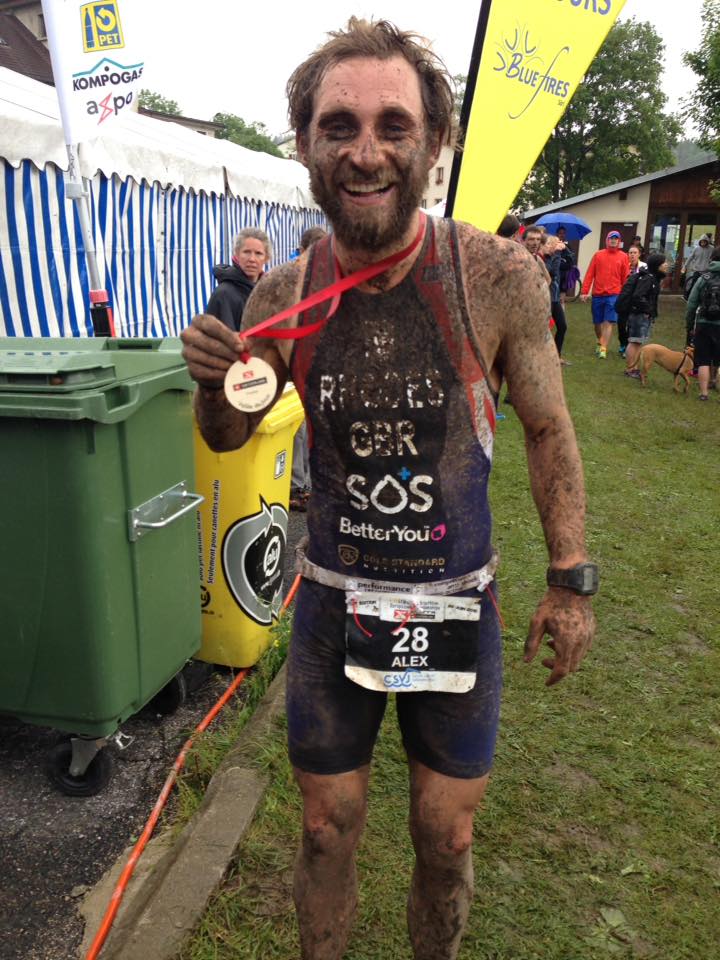
Held in Switzerland it was only natural that the Swiss would enjoy a huge medal haul. The conditions were truly testing and many athletes made the brave decision to simply quit. Some athletes were new to the ETU / ITU scene and some just disappeared off the radar but those who are regular supporters of our events are the ones that we will focus upon here.
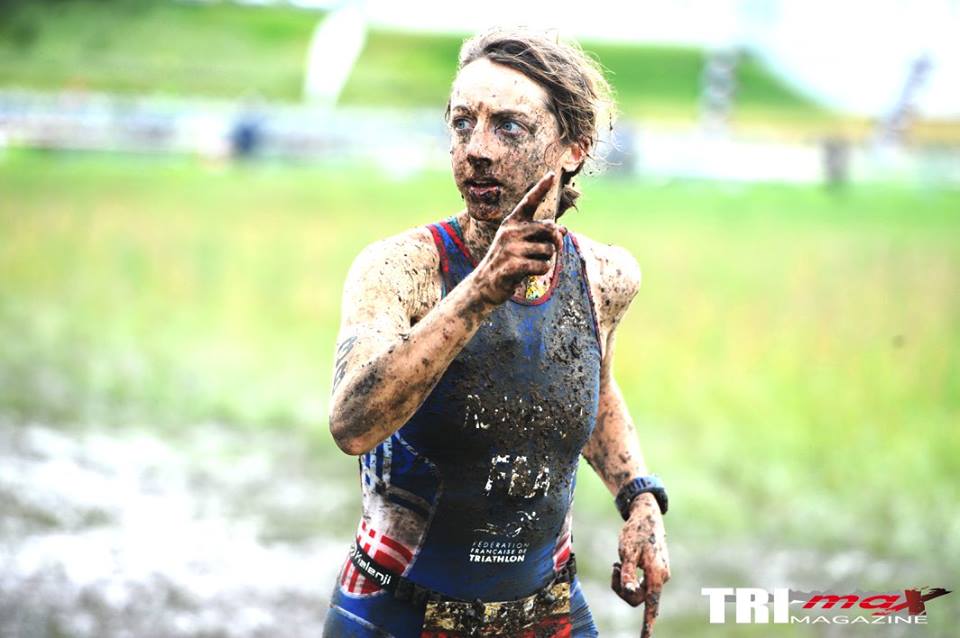
Great Britain’s Sarah Bakewell improved upon her 25-29 silver from Schluchsee with a victory. Frenchman Pierre Roblot was European Champion in 2014 but had to wait until this year to repeat that honour having missed out on the podium with a 4th place last year in the same category.
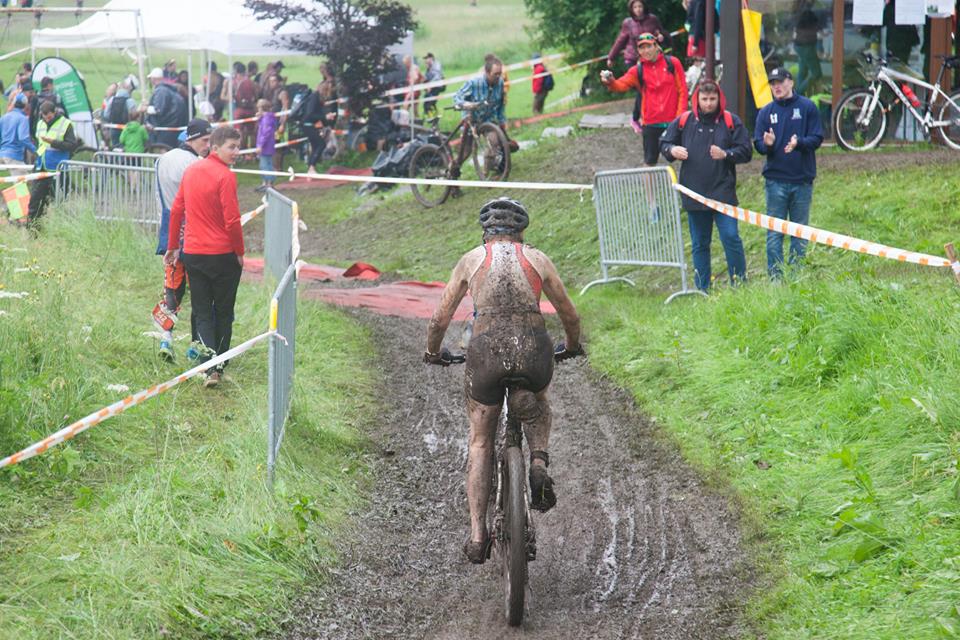
The 30-34 category saw athletes improve upon previous performances and saw athletes appear again on the podium in 2016. Silver for the women went to Nadine Jackel GER, who took bronze in Schluchsee. Bronze this time went to Sharn Hooper GBR .
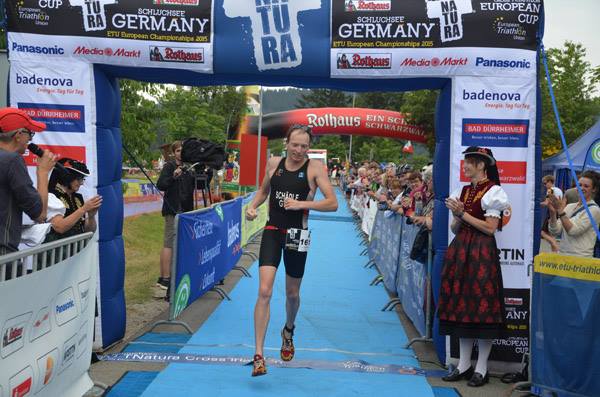
Amongst the men, the fastest age group athlete in Schluchsee was Martin Schädle GER. On this occasion that honour went to Frenchman Roblot but Schädle was fast enough to win the gold in his category.
Defending title holder in the 35-39 category, Angela Niklaus SUI was dominant on the bike and for the second year in a row, is ETU Champion. Silver went to a fellow-Swiss, Karin Hansen who can add this medal to her collection of 2 golds; ETU in Sardinia and ITU in Zittau along with her ITU silver in Den Haag back in 2013. Bronze went to Natalie Smith who won gold in the ETU race in Den Haag in 2012 and a bronze in Strobl am Wolfgangsee. After the DNF in Sardegna, her return to the podium must be welcome. For the men, Johannes Franzky added this title to his Cross-Duathlon title. A nice double. It was a close race between him and the Spaniard, León Martín Drajer and the race was effectively won in T2, with the German making the change from bike to run in record time.
In the 40-44 category, hard work and dedication paid off for Austria’s Martina Donner. An ETU bronze in Sardinia in 2014, an ITU silver in Sardinia in 2015 and now an ETU gold in the mud of Switzerland. Her performance took her well-ahead of Nadja Mueller Schmid who later headed down-under to race in the Snowy Mountains event where she was rewarded with a top ten place. Maria Kring SUI made up the podium making it three ETU medals in three ETU Championships in three years. Gold has eluded her so far but a silver and two bronze medals is better than most.
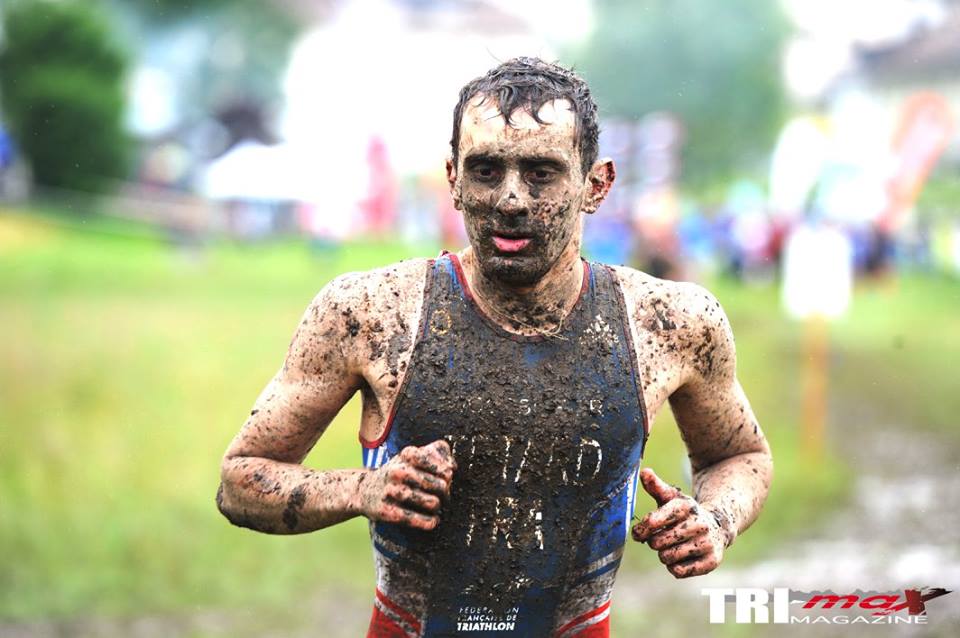
Amongst the men, Swiss Triathlon led by example with its Executive Director, Oliver Imfeld winning gold by almost 16 minutes. A truly impressive bike leg, took him way out front and more than made up for the disappointing DNF in 2014 in Sardinia. For Frenchman, Nicolas Martin his 2015 DNF at the ITU Worlds in Sardegna was turned around to a silver here and later in the year the silver in the Châteauroux ETU Aquathlon European Championships. Bronze went to Italy’s Mario Garavaglia, who can regularly be seen at the ETU Championships for triathlon and cross triathlon but at this race, all went to plan and he made the podium.
45-49 saw GB’s Claire Hitchings do the double and secure Cross-Duathlon and Cross-Triathlon titles. Dutch supporters were delighted to see Simone Hakenberg take silver to add to her impressive collection of medals that span standard, long-distance and now Cross Triathlon events. GB’s Renell Brennan went on the race in Snowy Mountains. Unable to repeat her podium performance there, she nevertheless managed a top ten finish.
Carol Rasmussen DEN, took the honours in the 50-54 category to add to her rather impressive ITU gold in Den Haag in 2013, an ITU silver in Zittau in 2014, and then to her Geneva and Schluchsee golds in 2015. It was, however, a close battle with Germany’s Rita Härteis, who was an age-group world champion back in 2005 when she raced in Maui. A 2011 gold in Visegrad, a 2015 ITU gold in Sardegna and now a silver. Belgium was delighted with the bronze medal finish of Vinciane Cohen Cols as it shows a significant improvement on her previous fifth places in Geradmer (Long Course) and Geneva (Standard).
For the men in this category, French cheers went up for Benoit Lalevée who successfully defended his title. Guy Evans GBR, took the silver to match his 2015 medal and Jean-Daniel Roulier SUI won the bronze, which he can add to his bronze from Geneva last year over the standard distance.
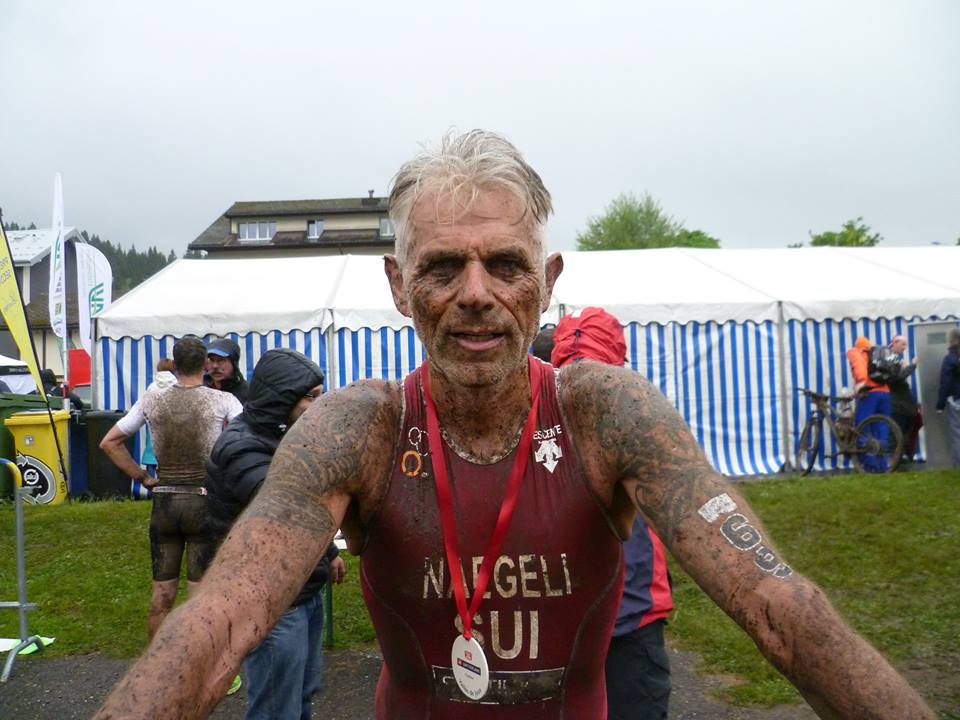
It went like clock-work for Swiss athlete Peter Naegeli in the 60-64 category. Having clocked 11:26 over the full-distance in Nice in early June, he came to these Championships at the end of June with a massive race still in his legs. His victory here is his fifth consecutive win at a championship event, with European titles in 2014 in Sardinia and in 2015 in Schluchsee, and world titles in Zittau and Sardegna. Denmark’s Karsten Arnfeldt Olsen moves into this age group, having won the world title last year. He must have been expecting this event to give him the victory as well, following his wins in Kalkar and Copenhagen but against Naegeli it was not to be. For Diego Gesi ITA, ten years makes all the difference. In 2006 he placed 40th in the ITU Worlds in Lausanne. Run the clock forwards and his bronze makes it clear; he’s back!
It was “survival of the fittest” in the 65-69 category as Urs Tanner SUI was the only one in his age group to get around the mud. A great improvement on his 8th place in Geneva the year before.
Medal-winners in the para waves were given especial respect as many athletes simply could not cope with the muddy conditions.
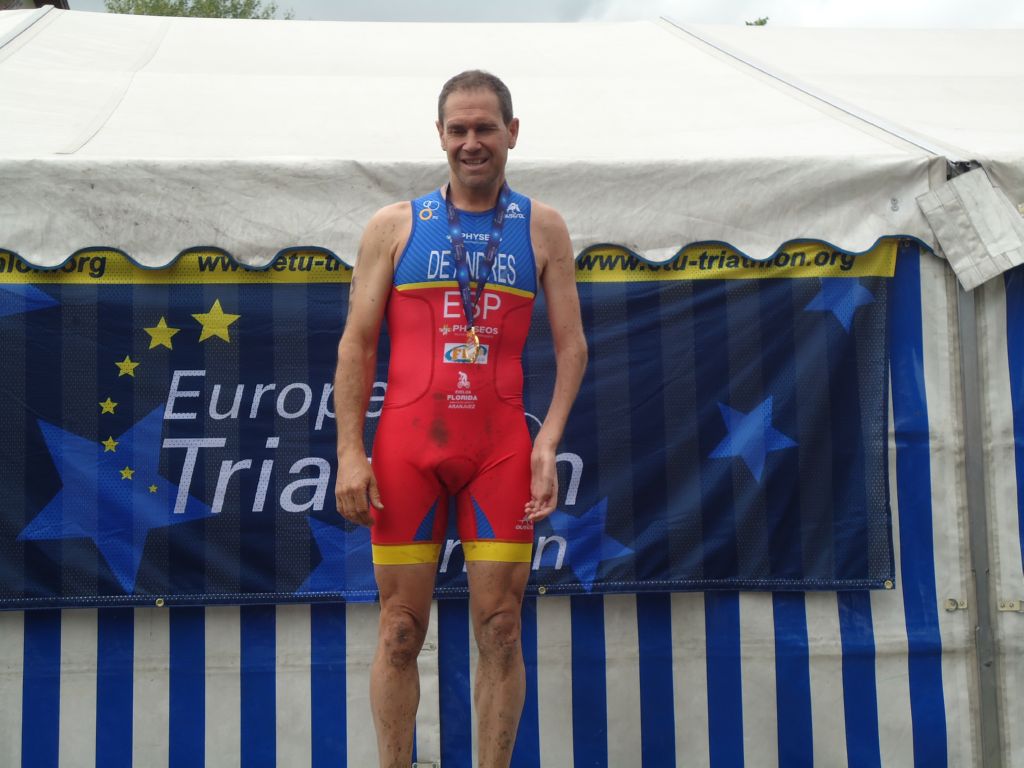
PT3 athlete, Juan Luis de Andrés Muguruza took gold and went on to a World silver in Australia. His medal tally so far shows that in 8 races, he has only missed out on the podium once.
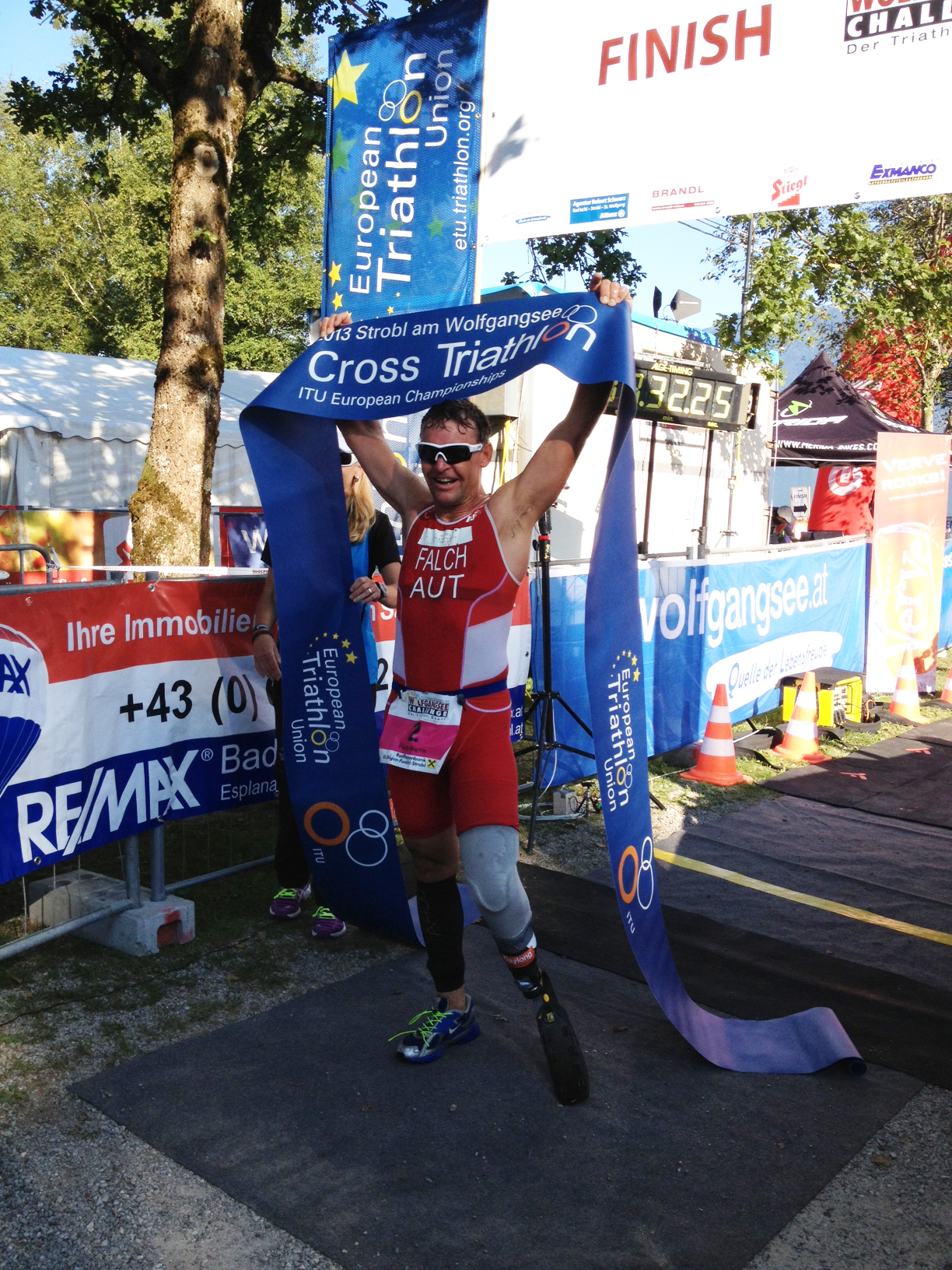
In the PT 4 category, it was Austria’s Martin Falch who took the honours. With a silver in Zeltweg this year at the ITU Winter Triathlon Worlds, he later went on to take a second silver in Walchsee at the Middle Distance Championships. With results stretching back to 2006, when para-athletes raced in the AWAD category, he has amassed an impressive collection of 7 World titles and 6 European titles. In only six races out of 34 has he failed to appear on the podium.
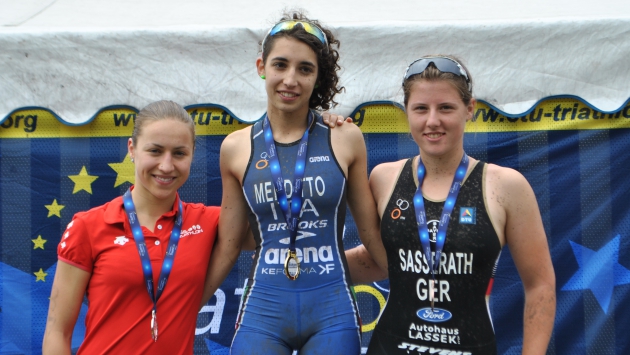
The Juniors raced a shortened course but it was still tough. Gold for the women went to Italy’s Marta Menditto, representing an improvement on her Schluchsee silver.
Loanne Duvoisin SUI, showed great strength and following her 8th place in Kalkar, was rewarded with silver ahead of Anna Pauline Saßerath GER.
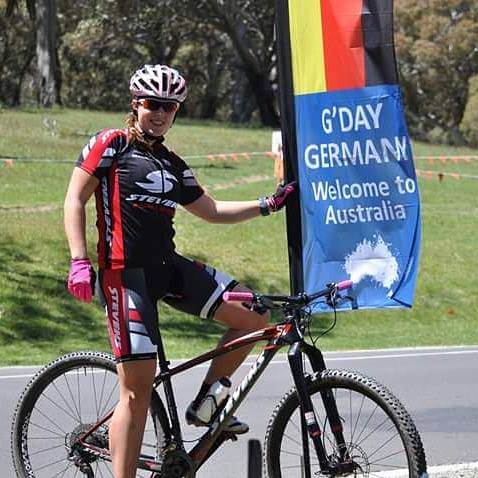
She closed the season with a silver in the U23 Worlds in Snowy Mountains.
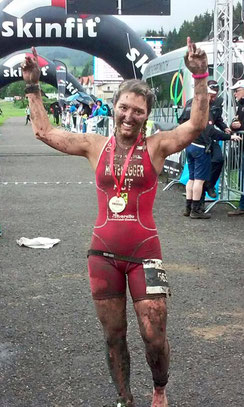
For the U23 athletes it was a victory for Austria and Sina Hinteregger.
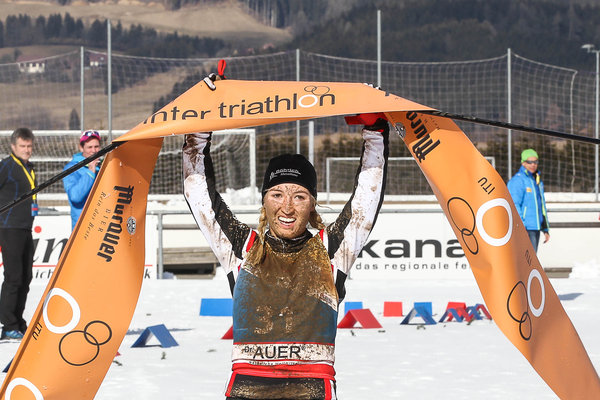
With what looks like a theme of mud, she can add this title to her Zeltweg World Winter. With consistent results as a junior athlete, her move up the ranks into U23 is a good sign for her racing at Elite level. The U23 men’s race was a battle between some very experienced athletes.
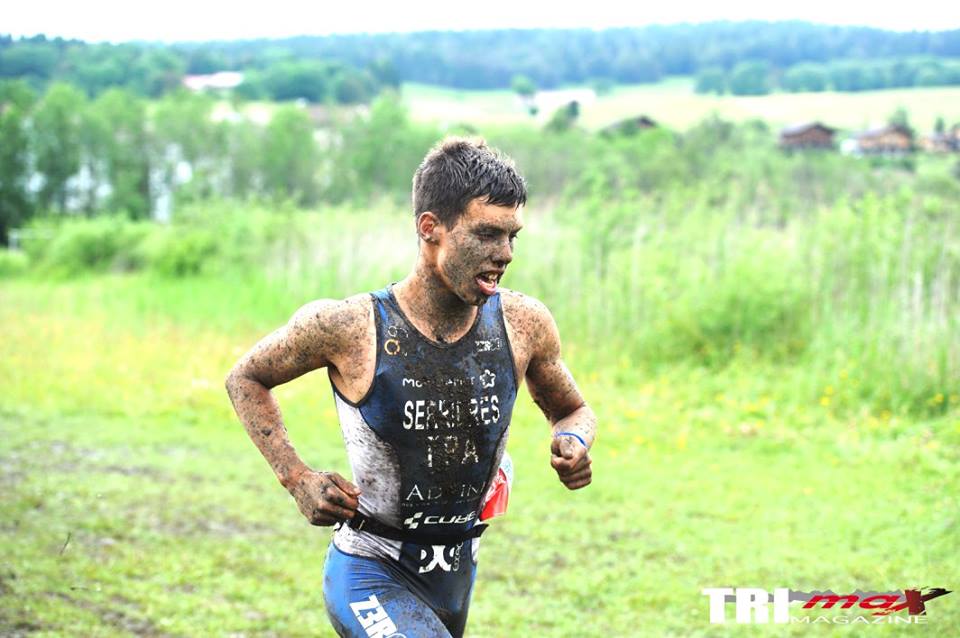
Leading them home was Arthur Serrières FRA, who has been supporting the Cross Triathlon scene within ETU and ITU since he was a junior. His dedication and hard work have paid off and for him, this title is the clearest signal that he is ready for the Elite racing that awaits him in the next couple of years.
There were no Swiss medals for the Elite Women but we did get the tightest of finishes as Myriam Guillot FRA had the final run of her life to beat not only the athlete but also the cheering crowds who thought that Renata Bucher SUI had the bronze in her hands.
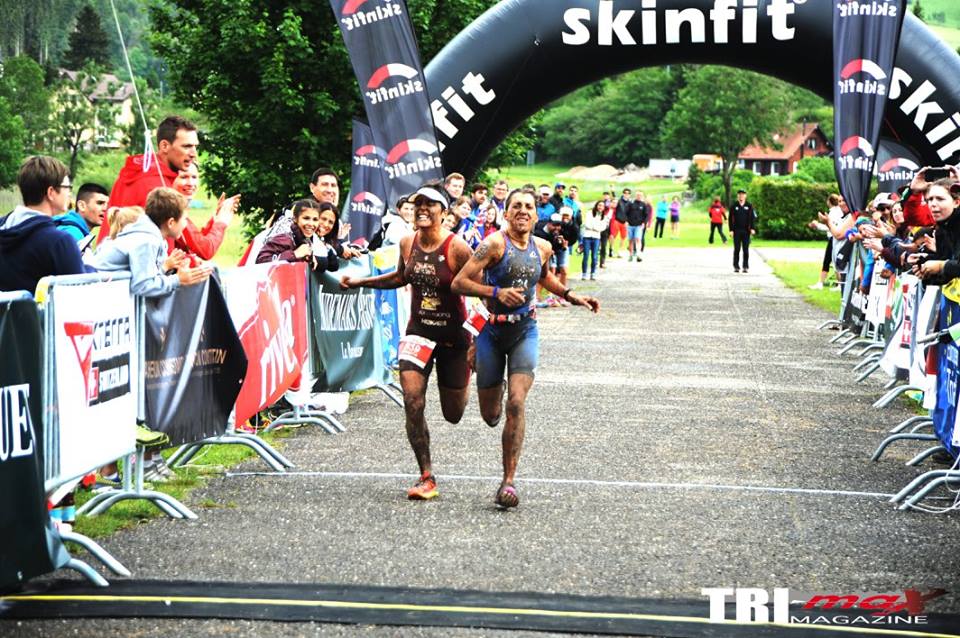
It was only in the very last steps to the line that the Frenchwoman, with the second-fastest run of the day, edged past Bucher.
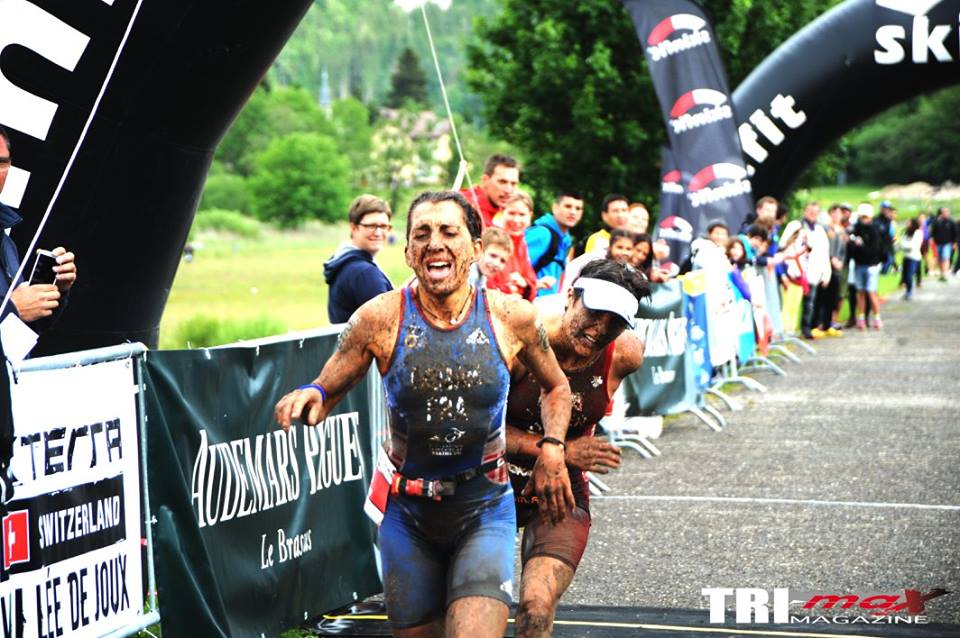
GB’s Jacqueline Slack was rewarded with silver but could not reproduce that form in Australia.
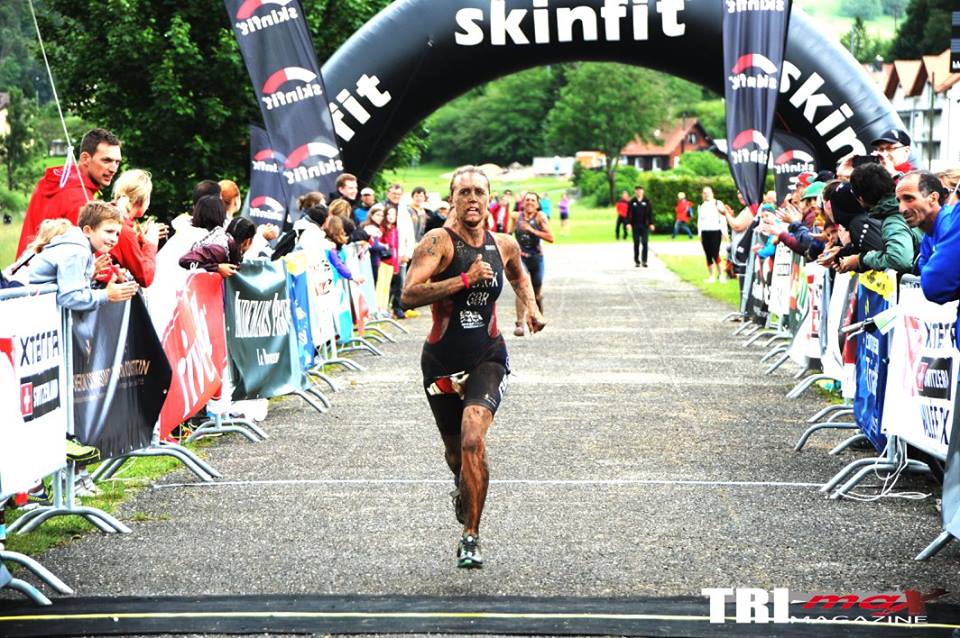
The gold went to an athlete we normally see on the road races, Michelle Flipo.
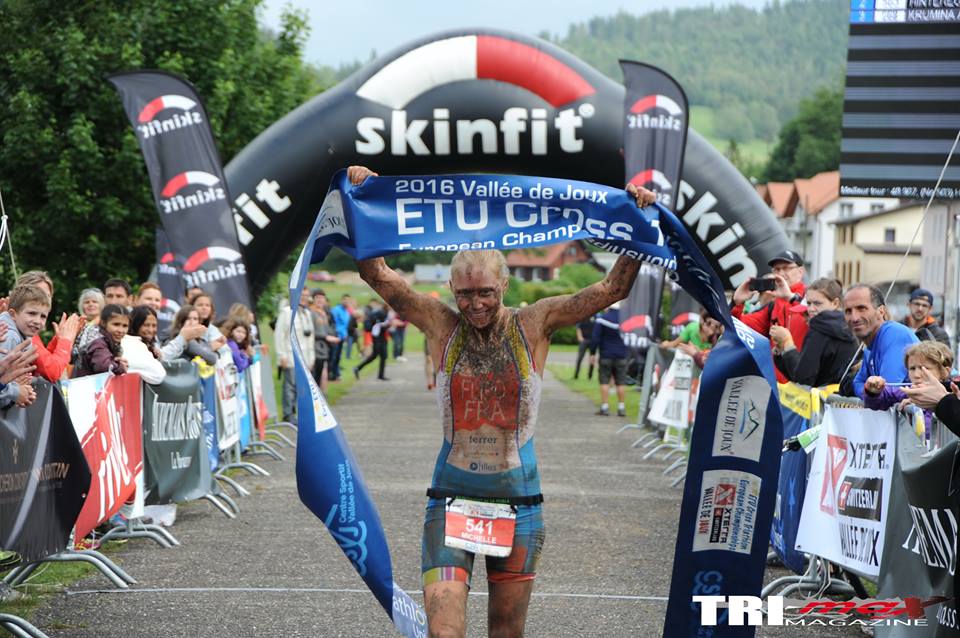
If there are any potential washing powder sposnors out there - please get in touch!
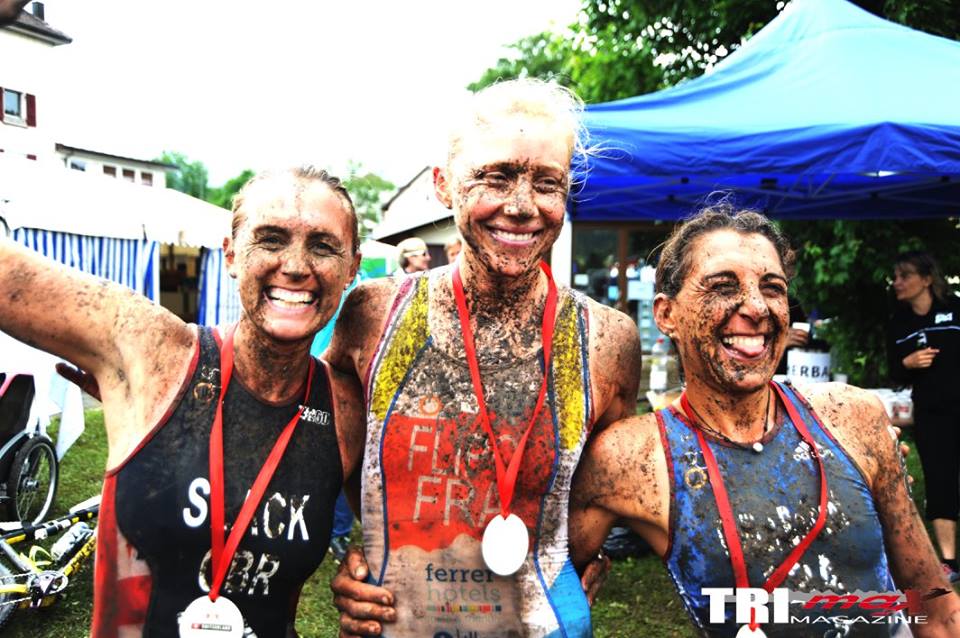
For the Elite Men, it was Ruben Ruzafa ESP who won and continued his winning streak.
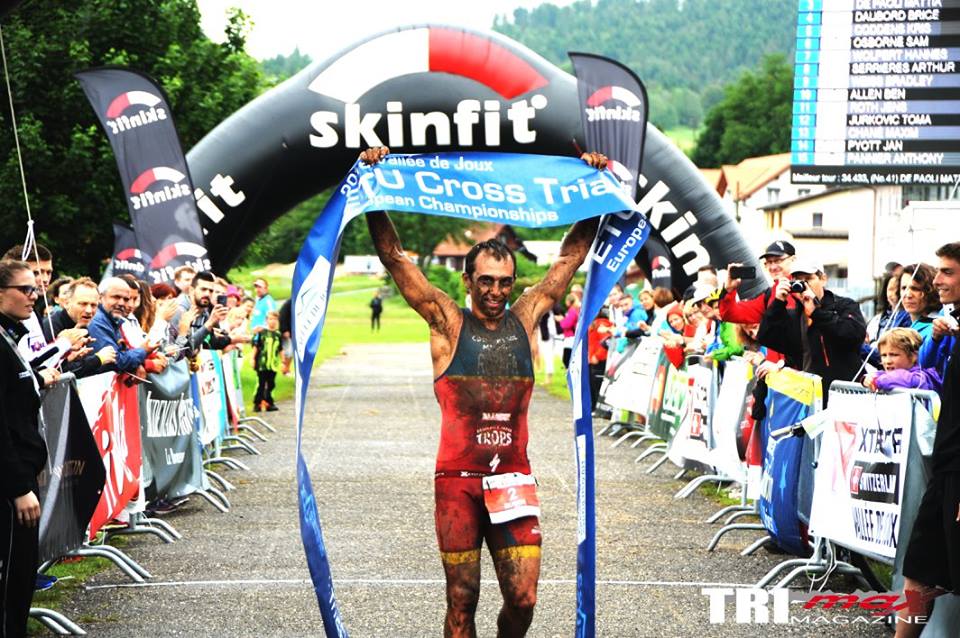
Gold was added later in the year in the Snowy Mountains, to his European title, to his 2015 and 2014 World titles.
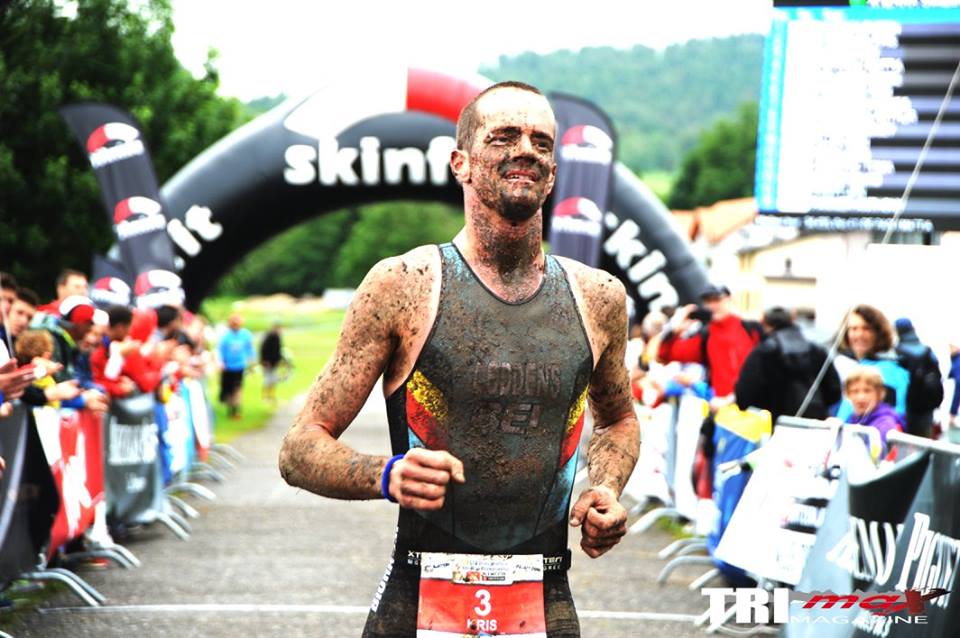
He edged out Kris Coddens BEL, who had tremendous pace on the run but just not enough to make up the deficit that had been created by a stunning ride on the bike by Ruzafa.
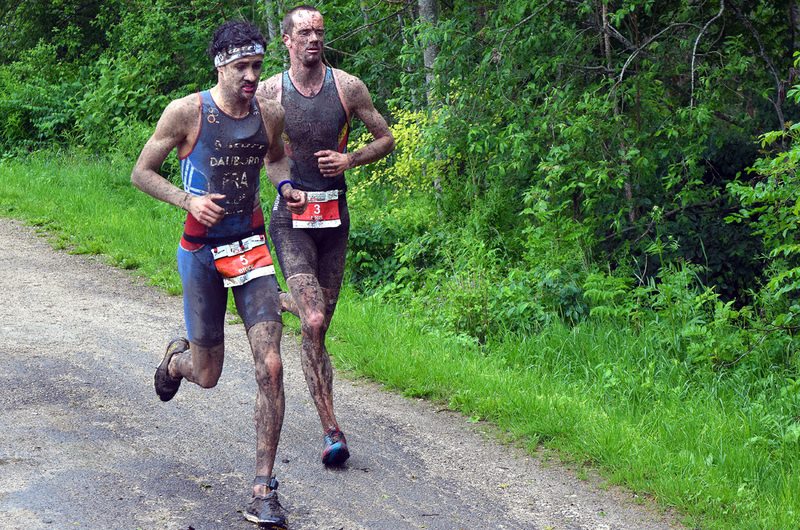
Coddens’ European title from Castro Urdiales was handed to the Spaniard and behind them came Frenchman Brice Daubord who has successfully made the move to off-road racing.
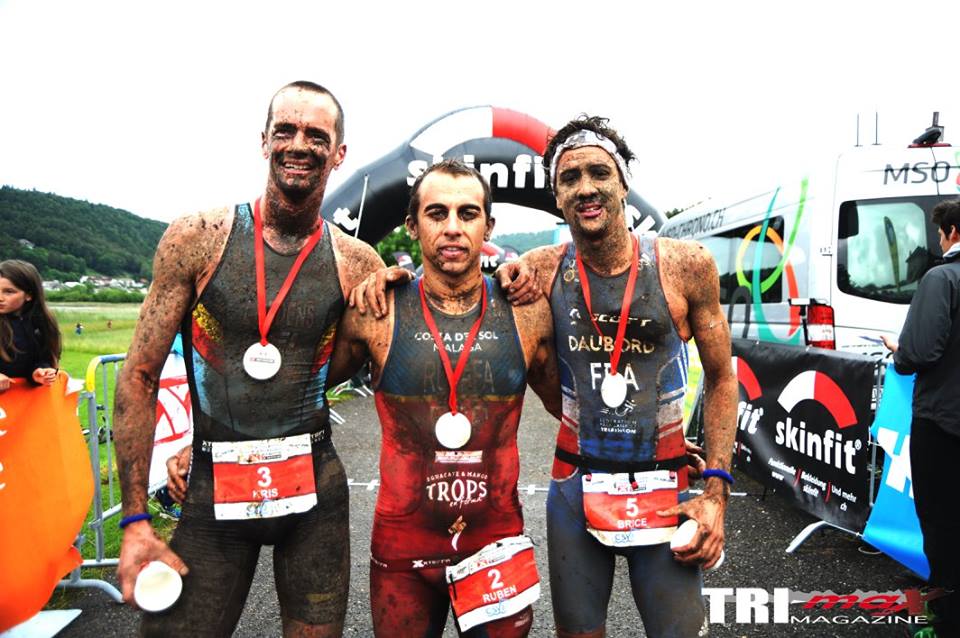
A bumper look back then at our athletes who race in the cold, who race off road and for whom a little bit of mud is … well, part of the race.
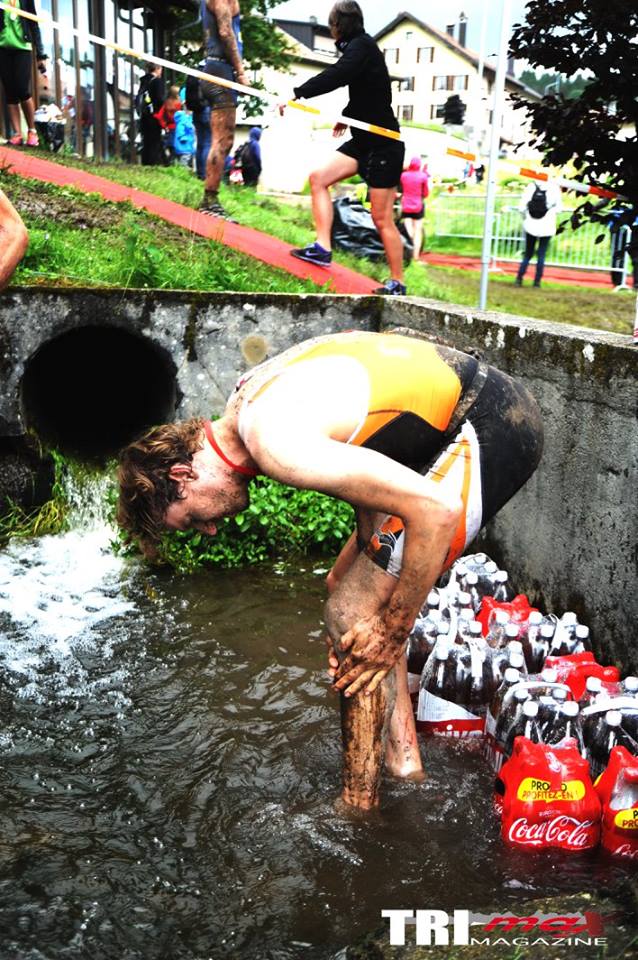
2017 will see all these titles contested for once more and we have seen that already there are many of you out on the pistes and many of you building up the miles on your mountain bikes.
Good luck to you all. See you in 2017!

